
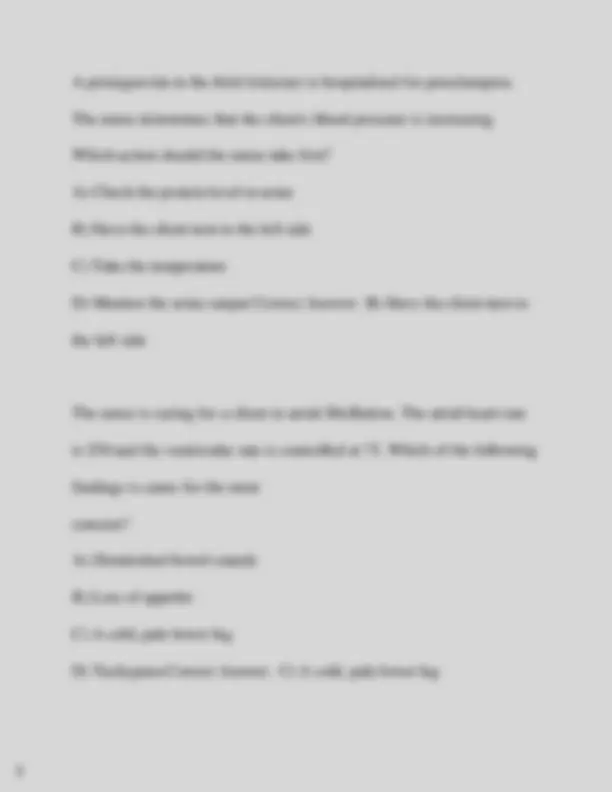
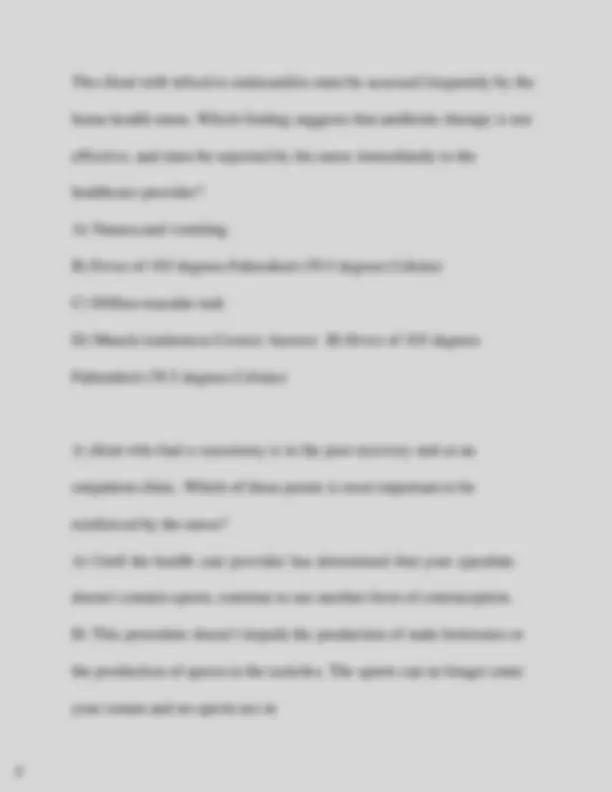
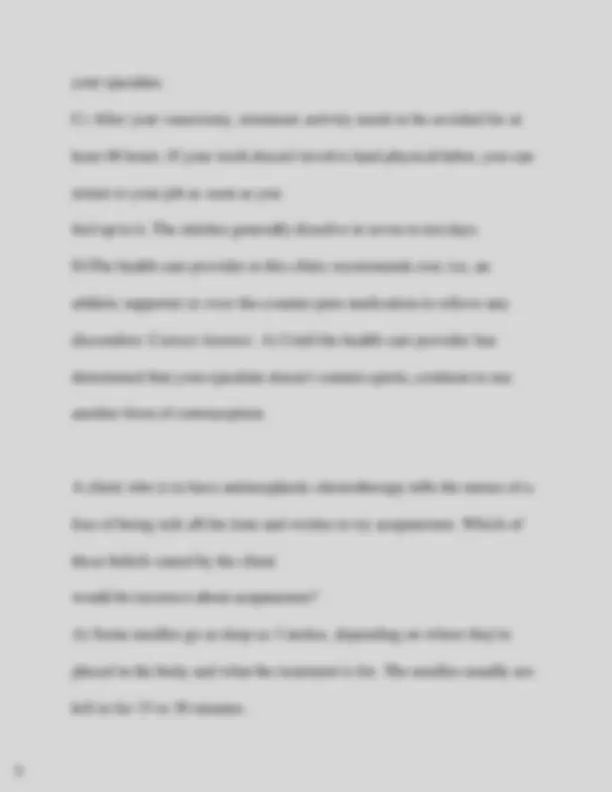
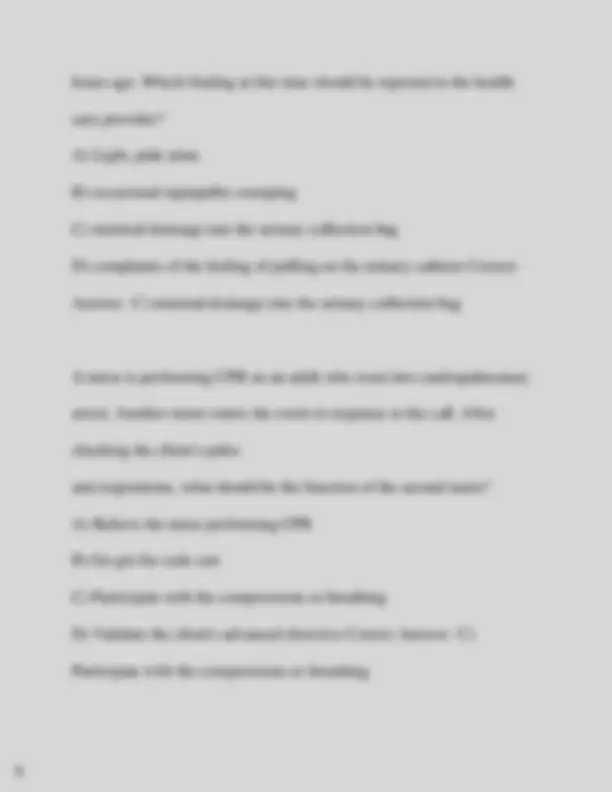
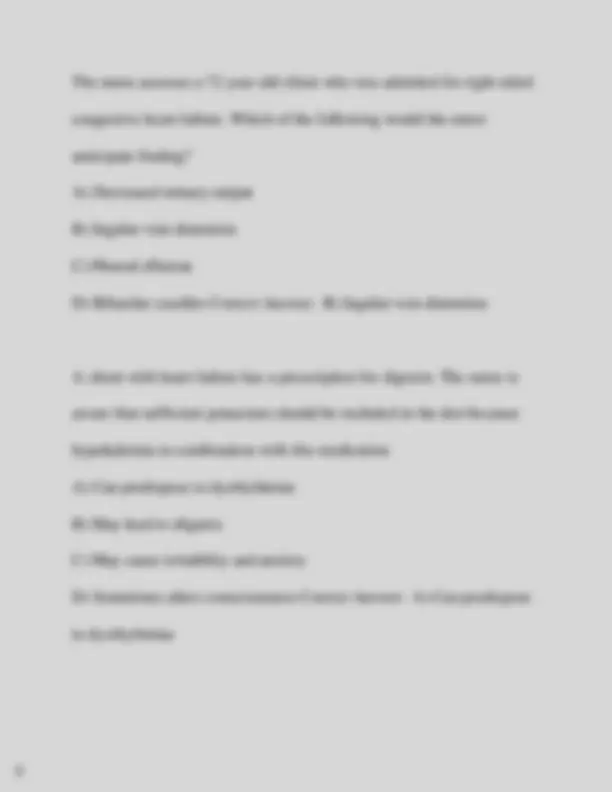
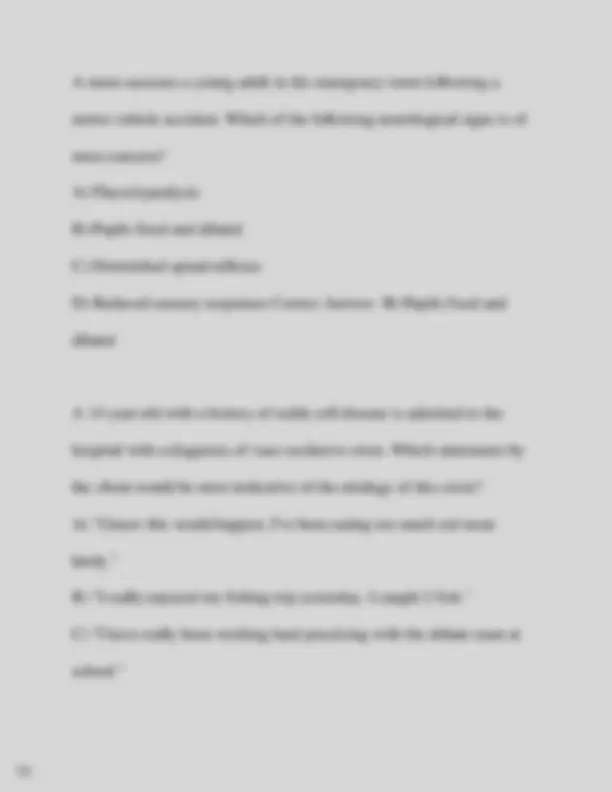
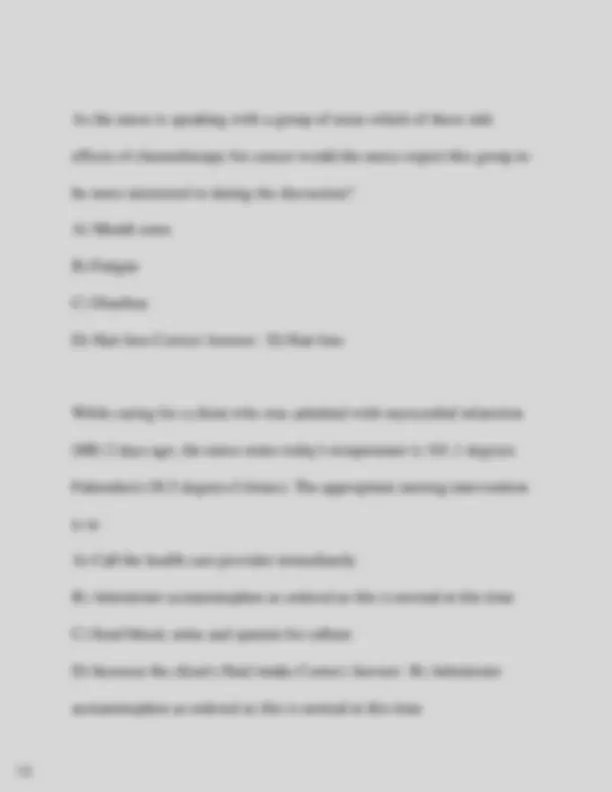
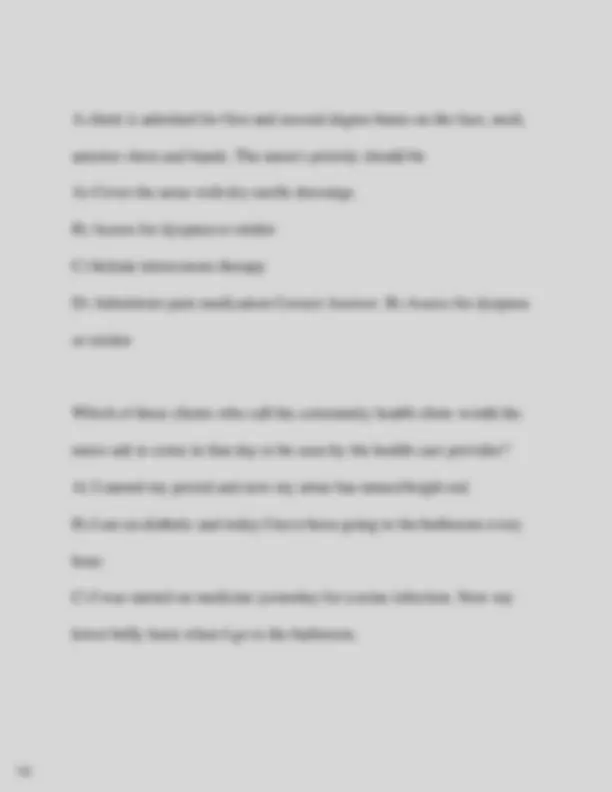
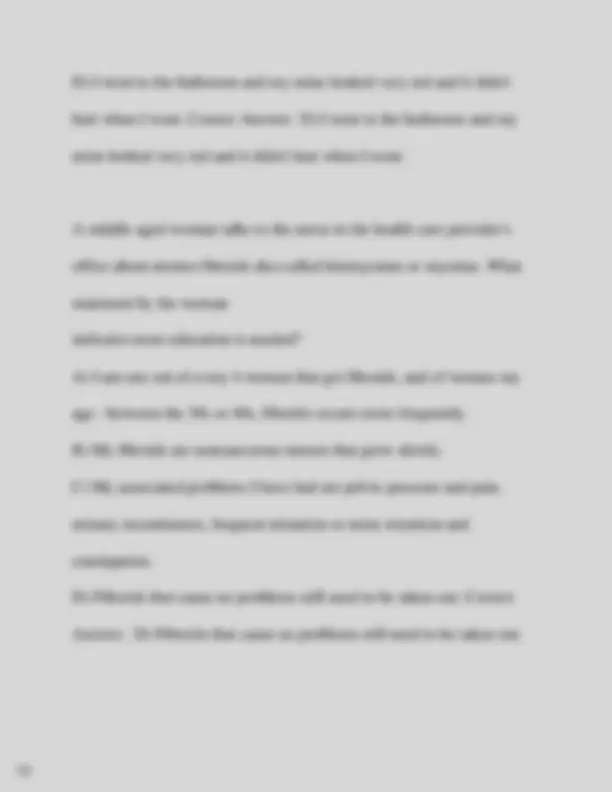
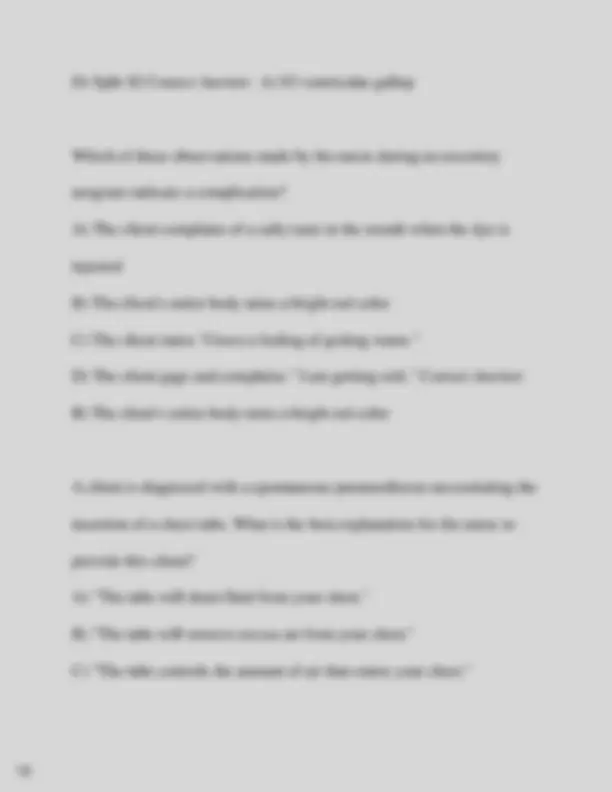
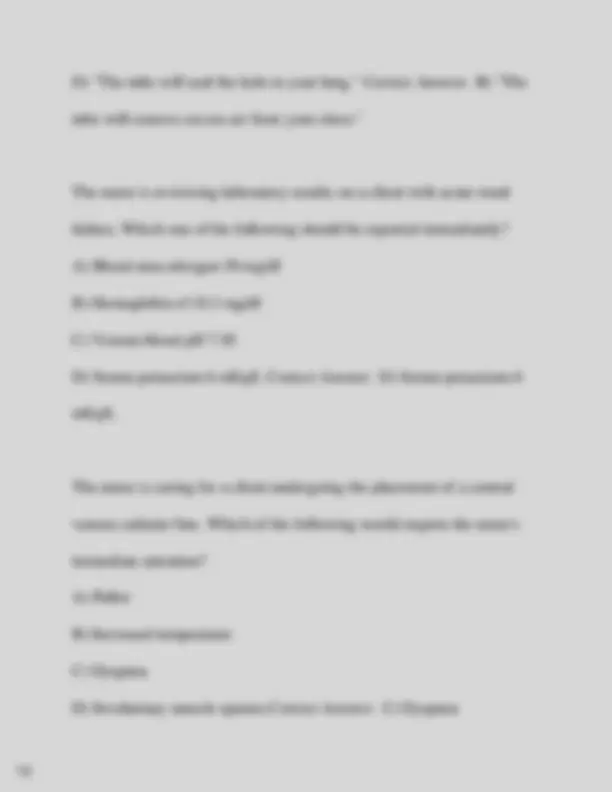
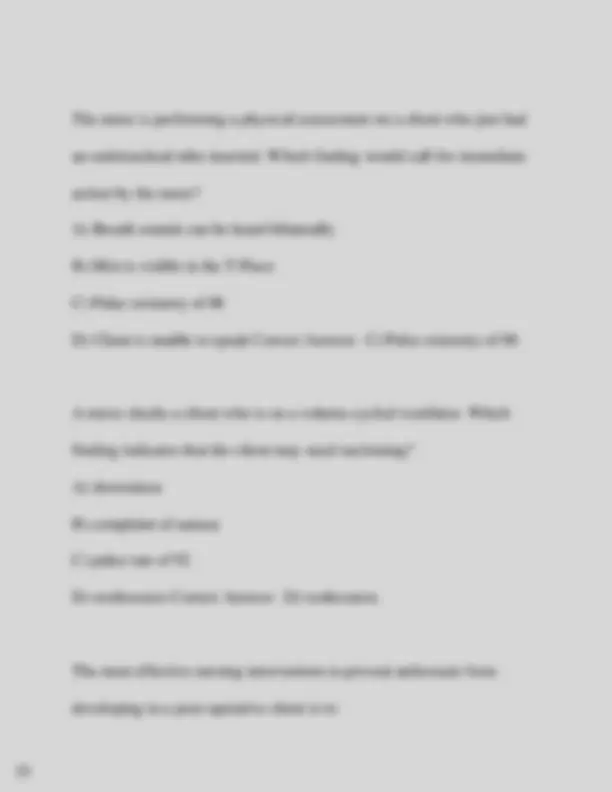
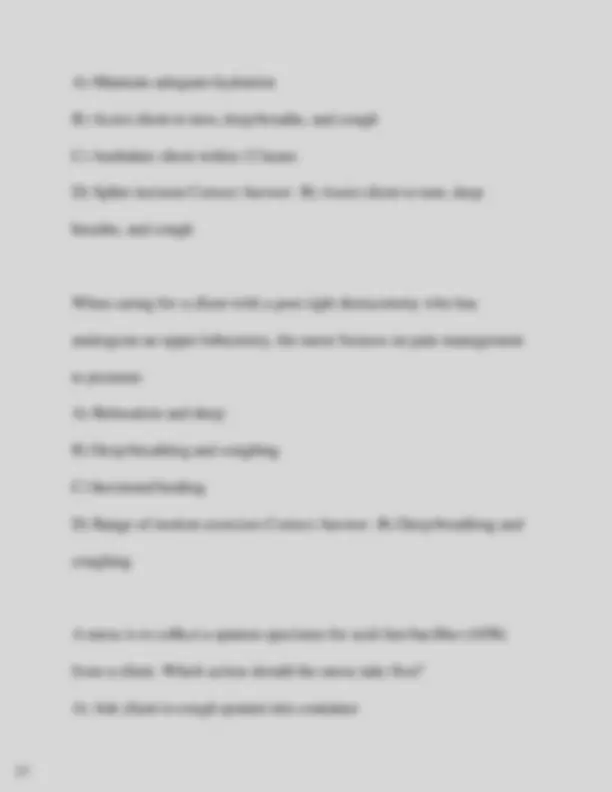
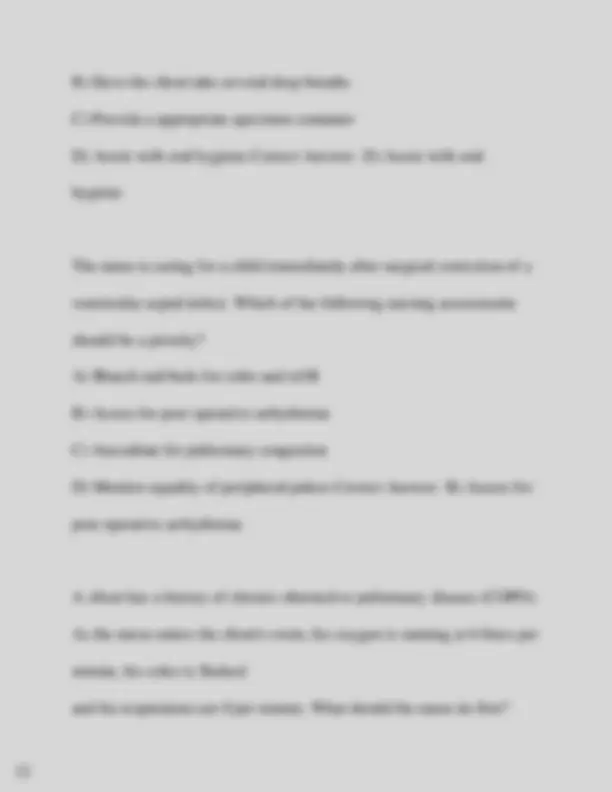
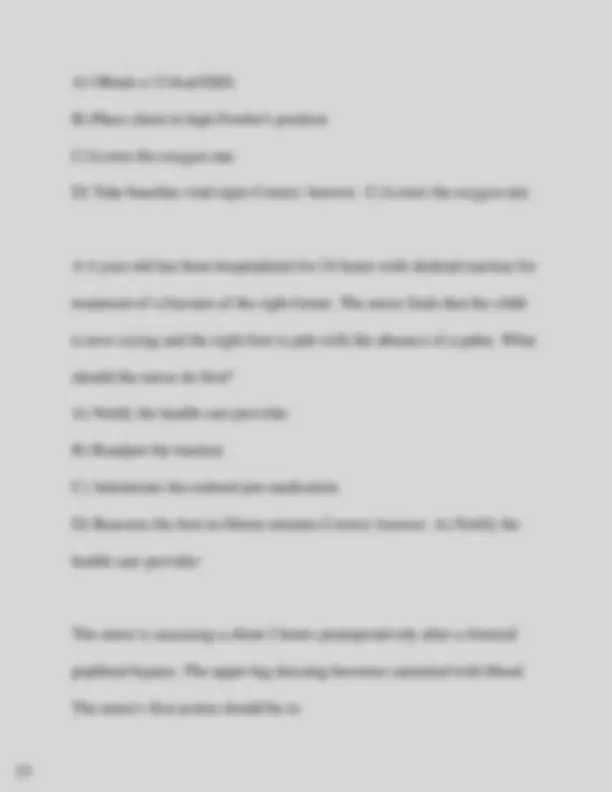
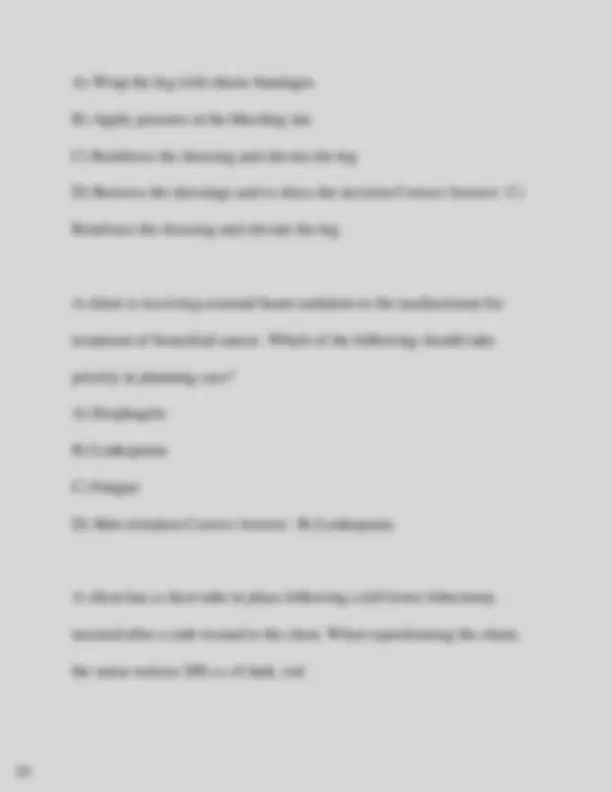
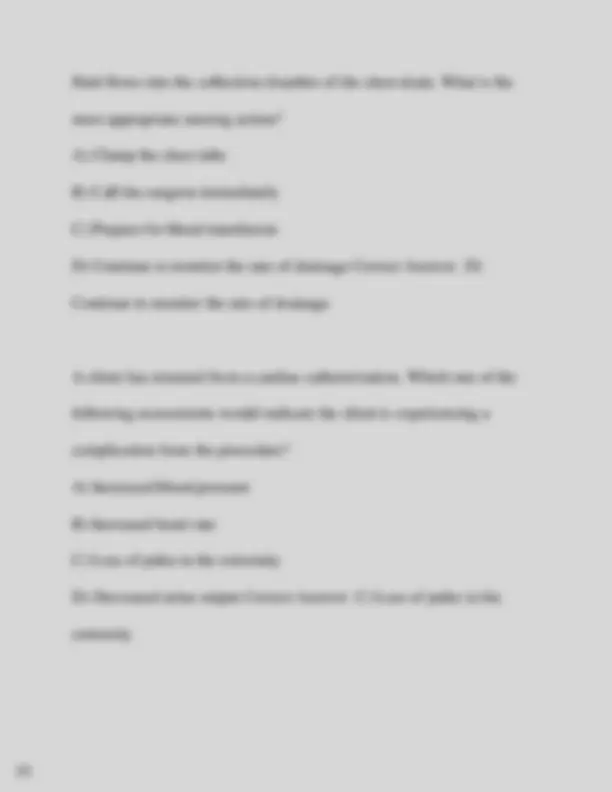
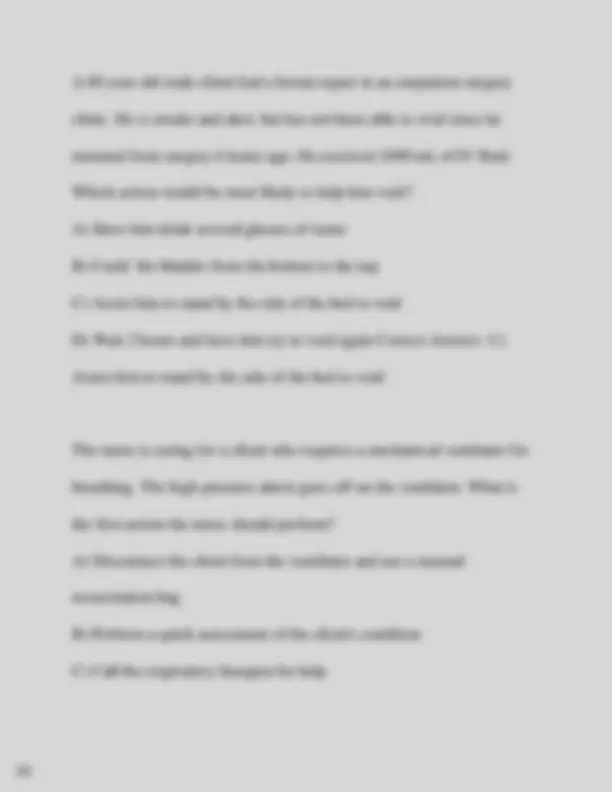
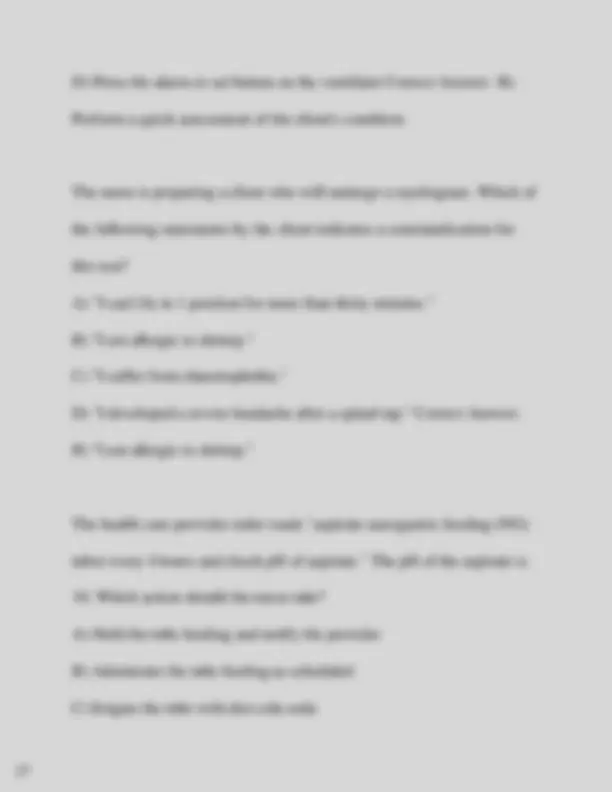
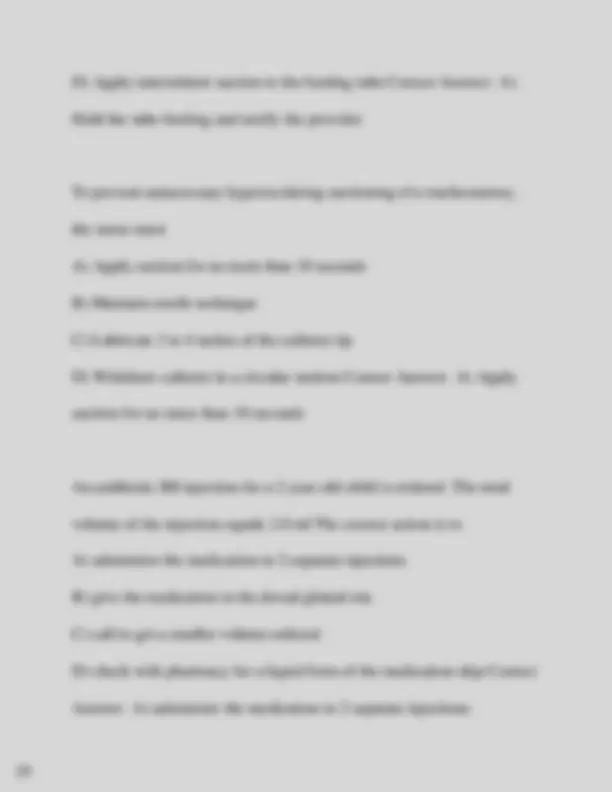
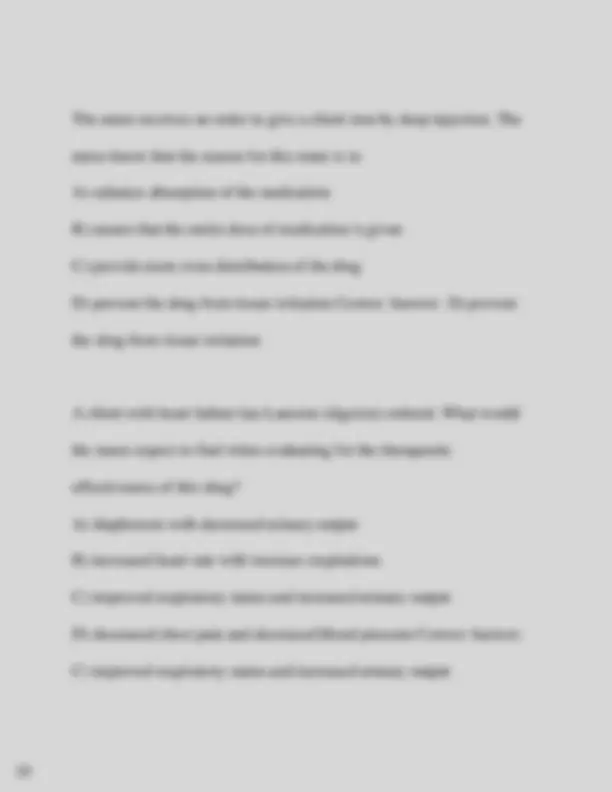
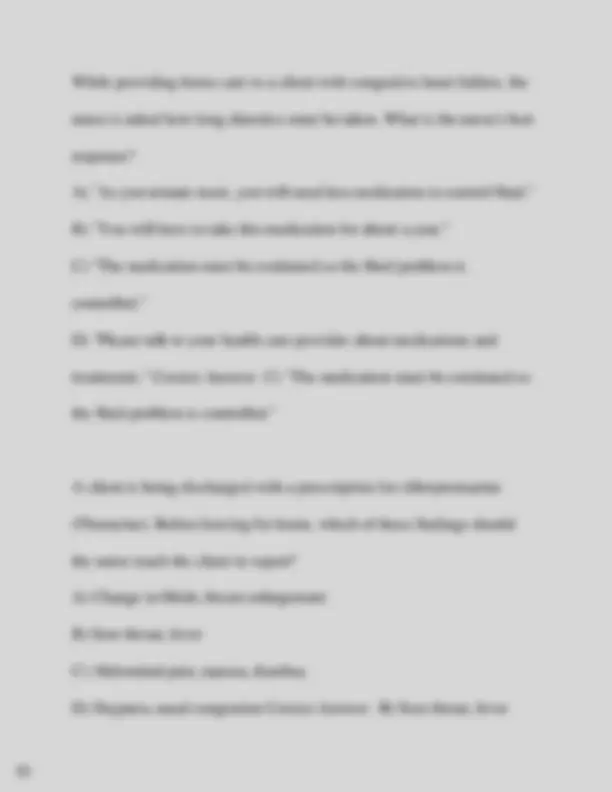
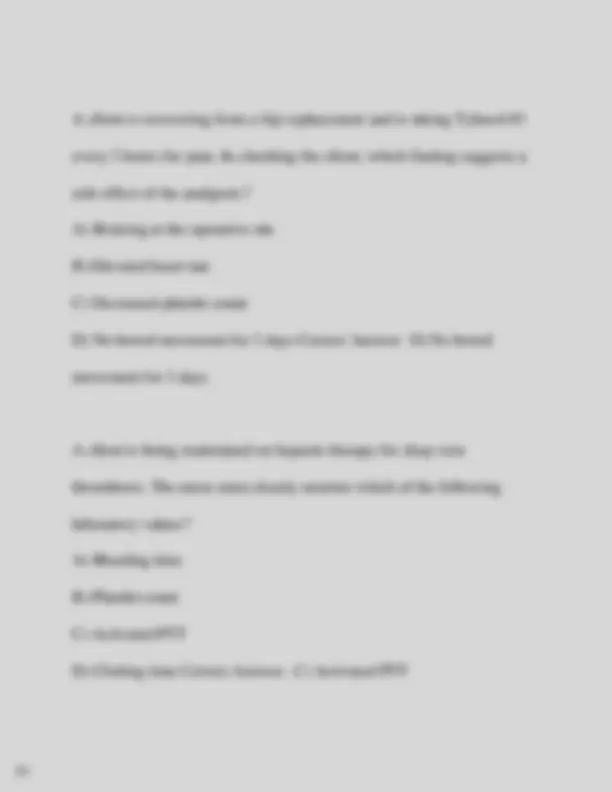
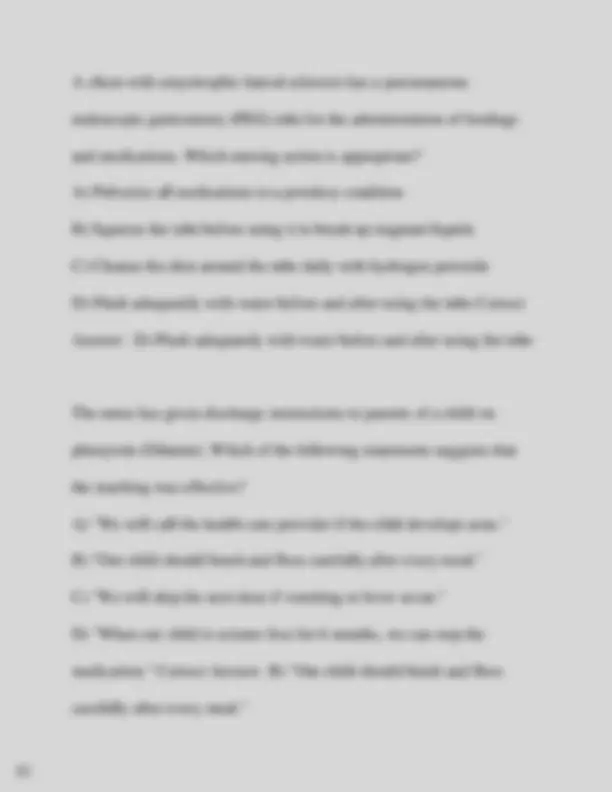
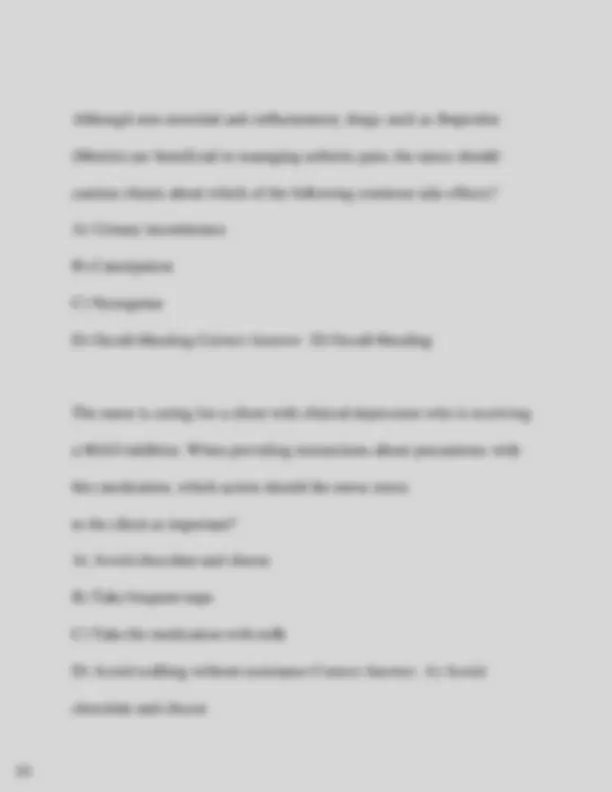
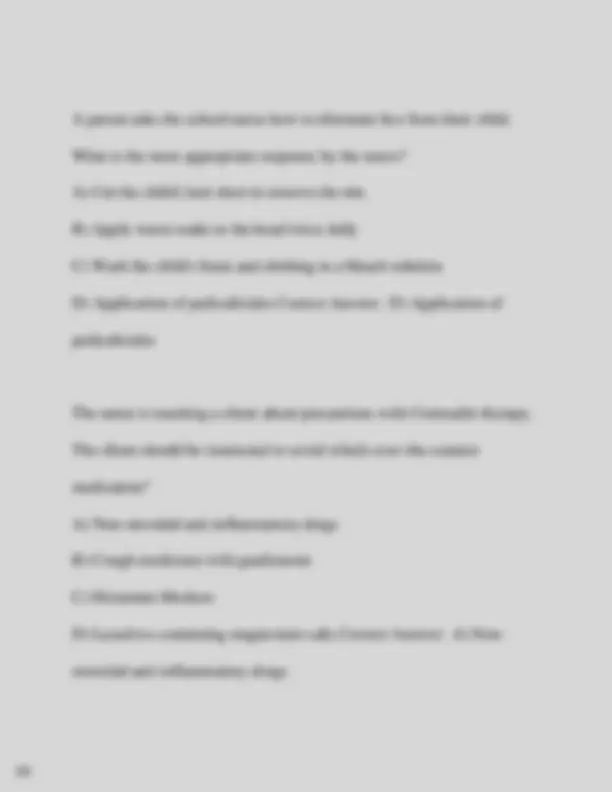
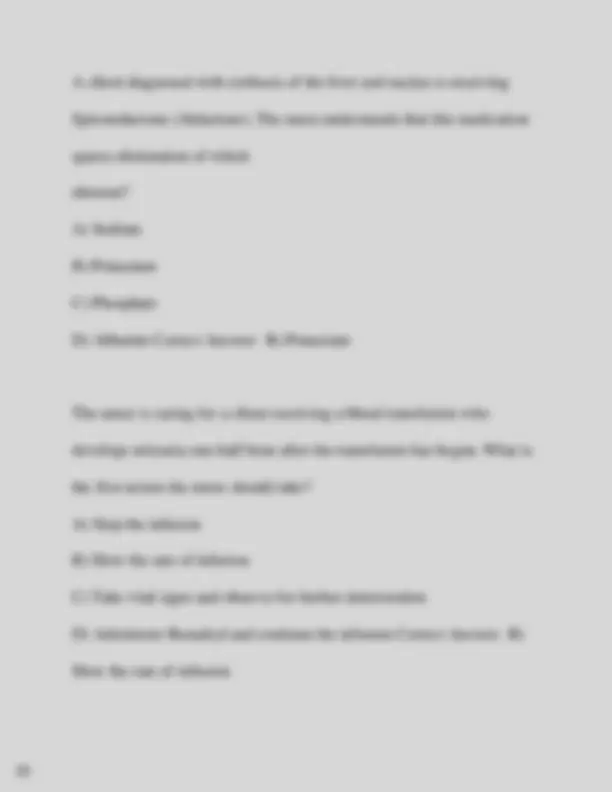
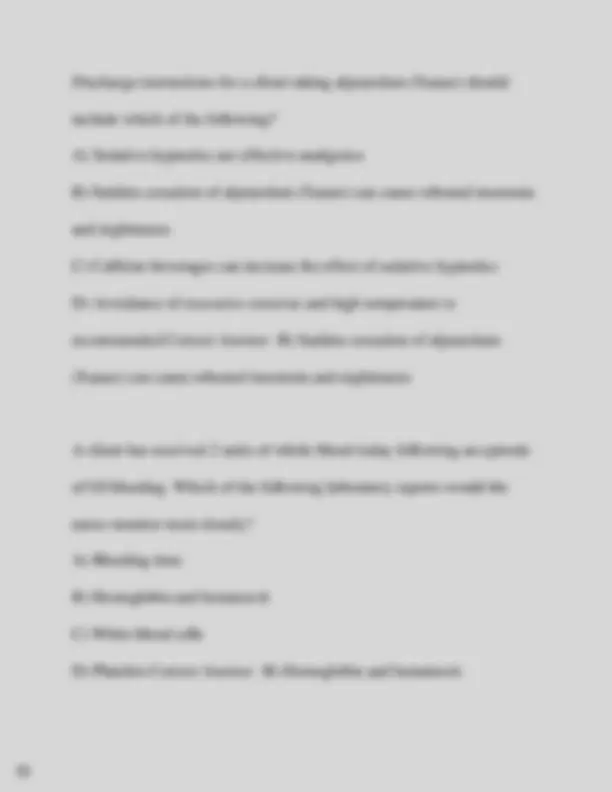
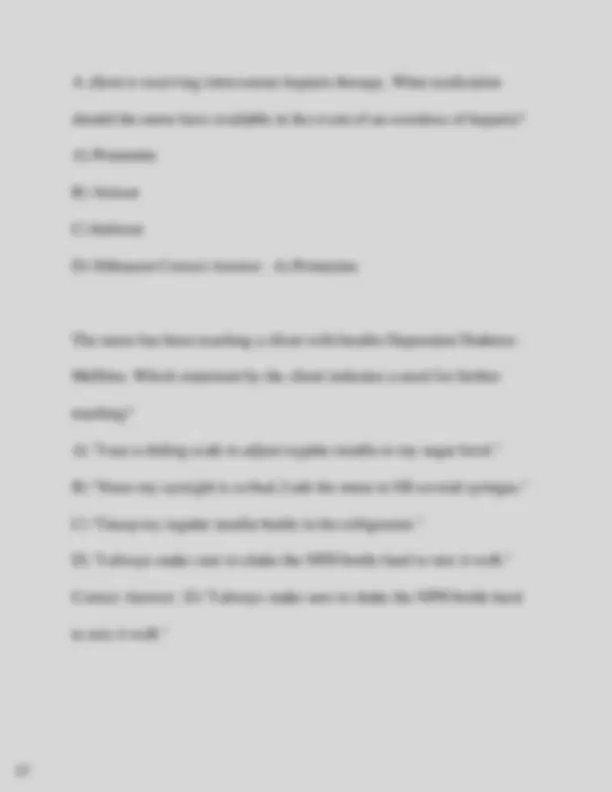
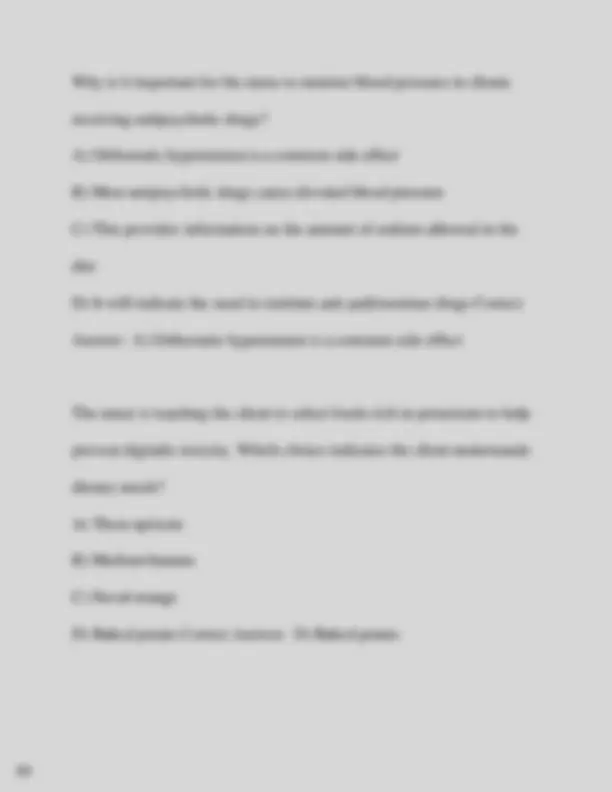
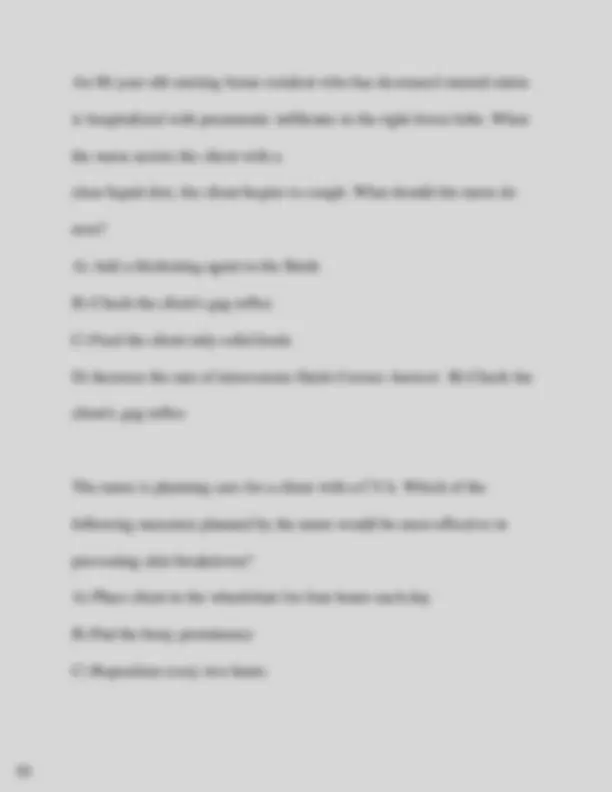
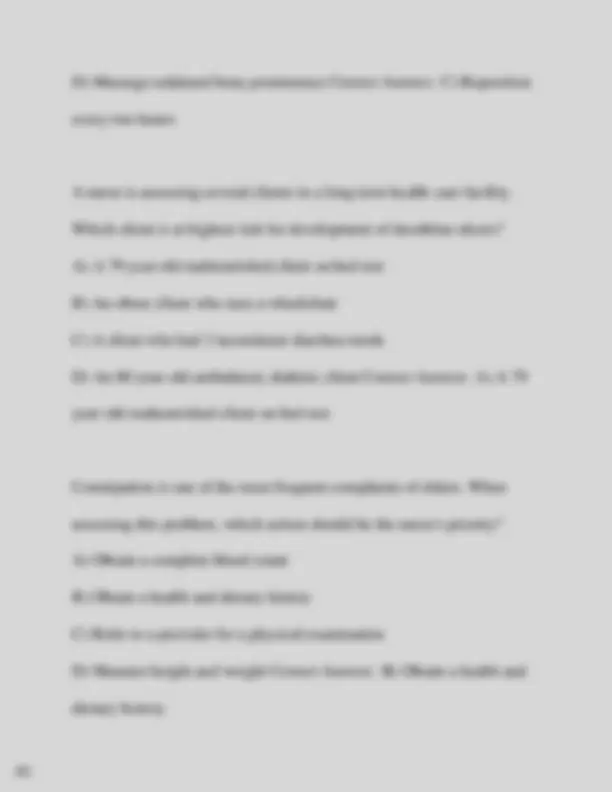
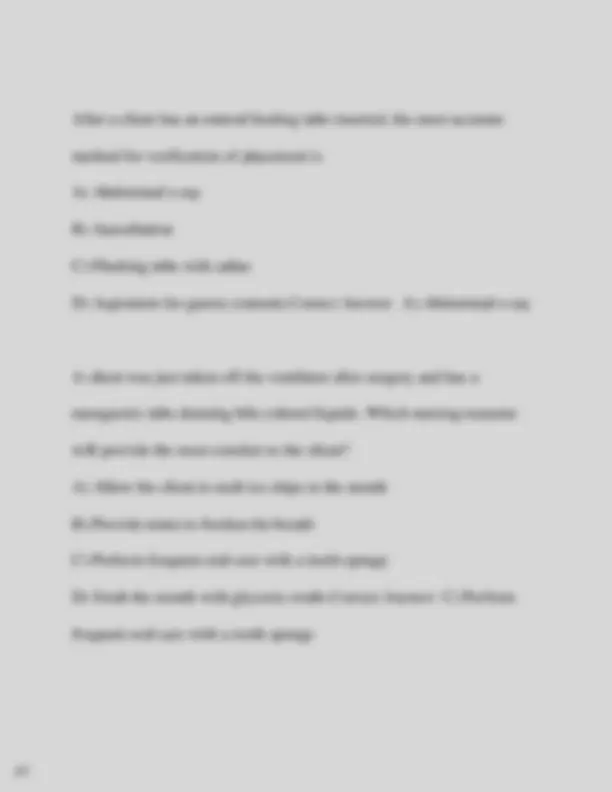
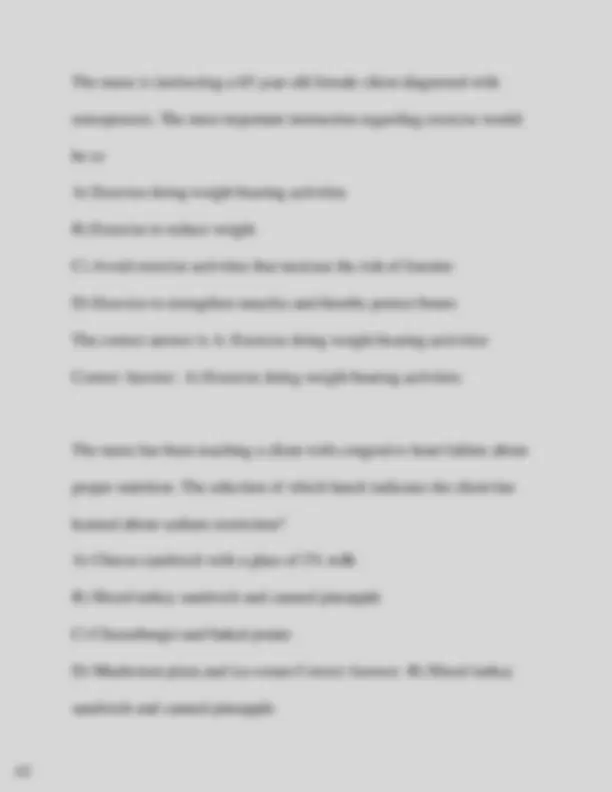
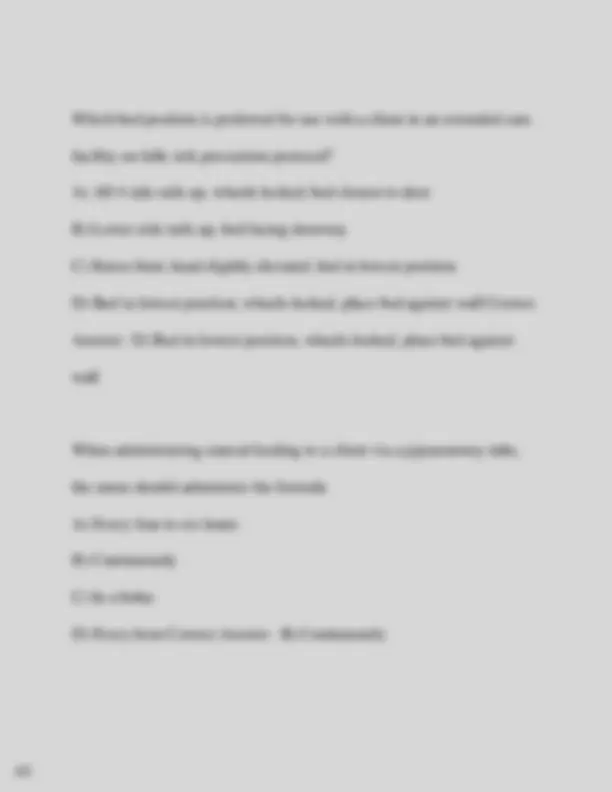
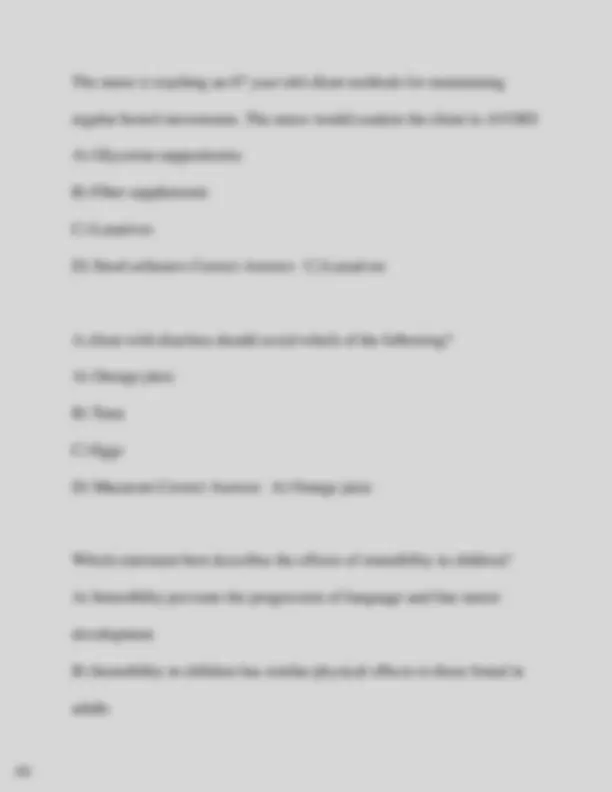
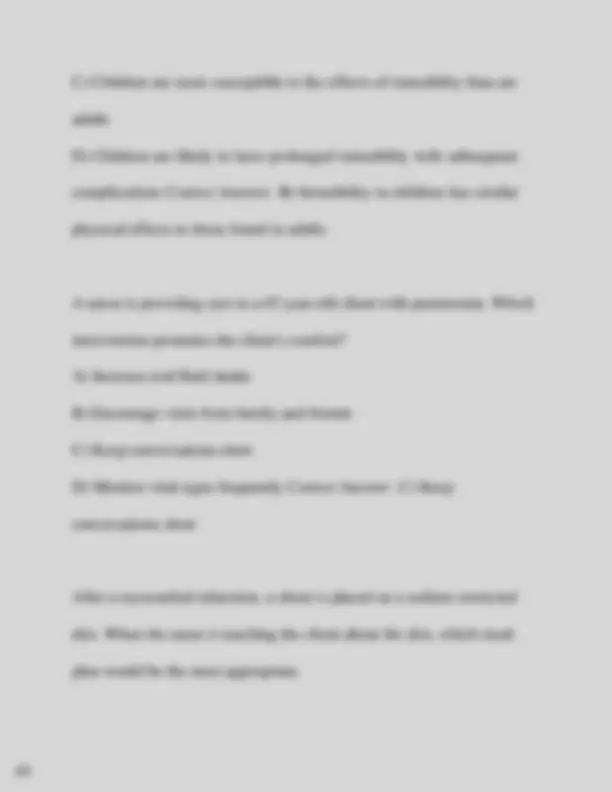
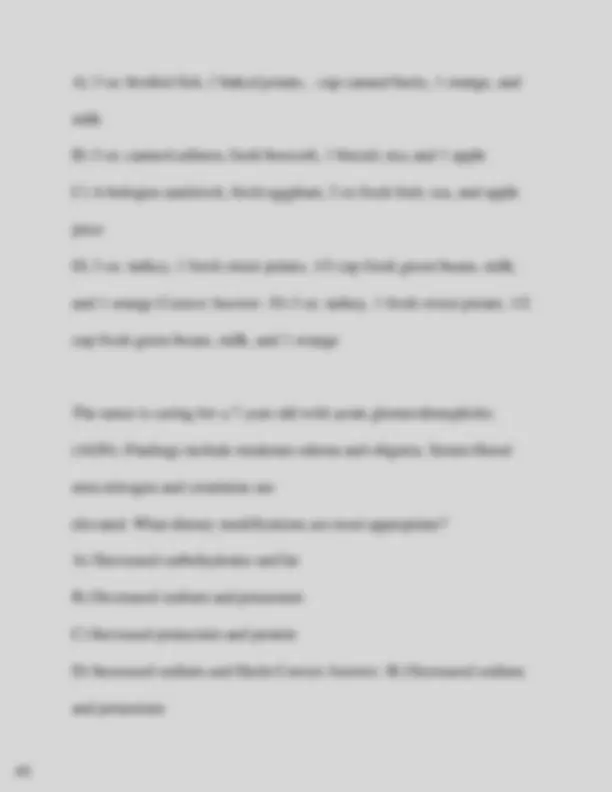
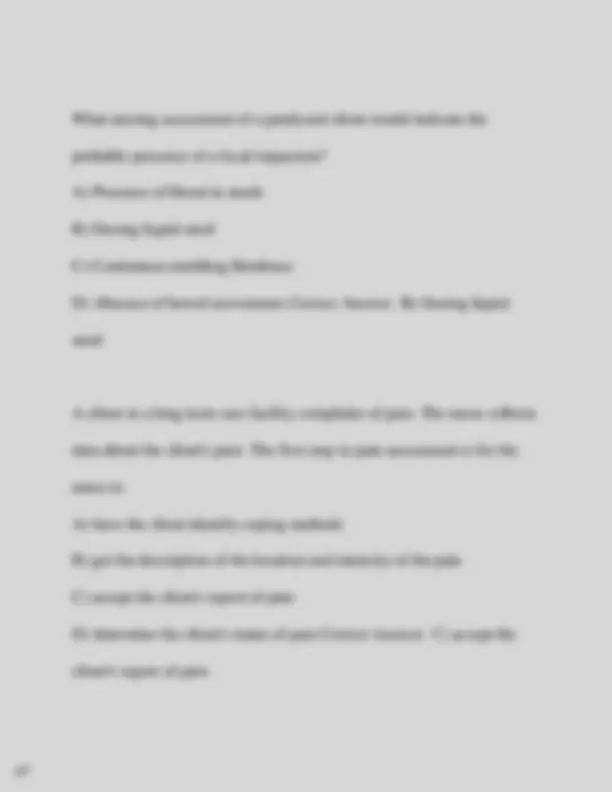
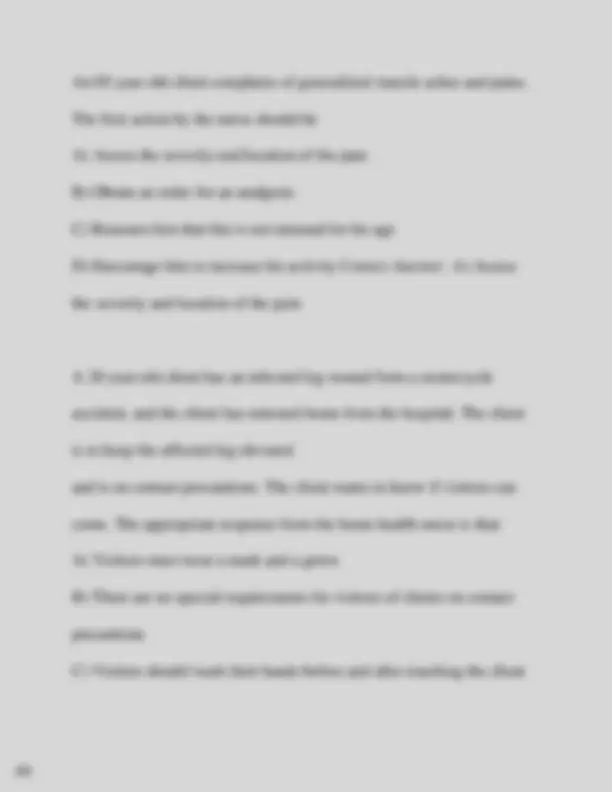
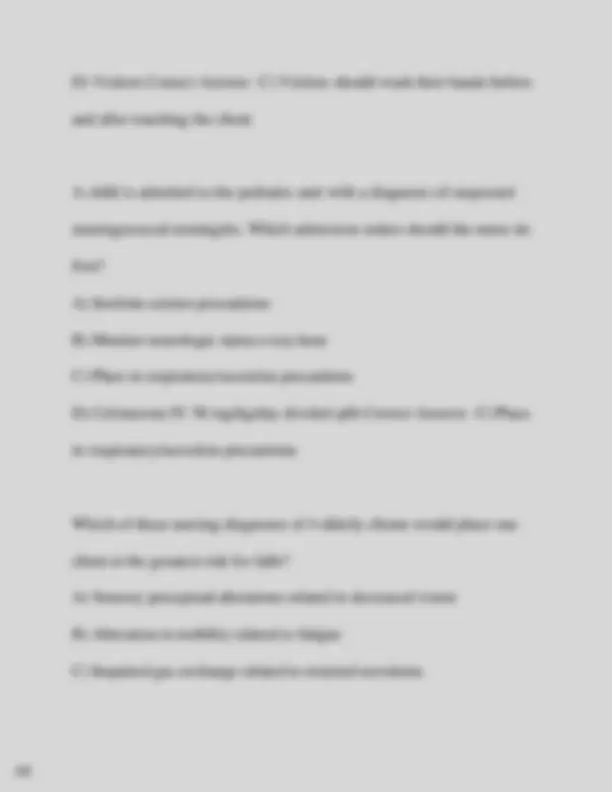
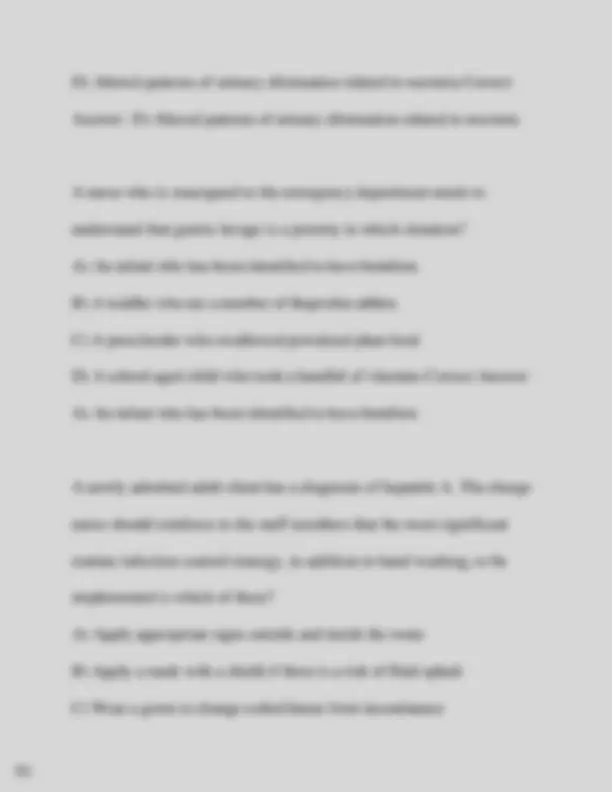
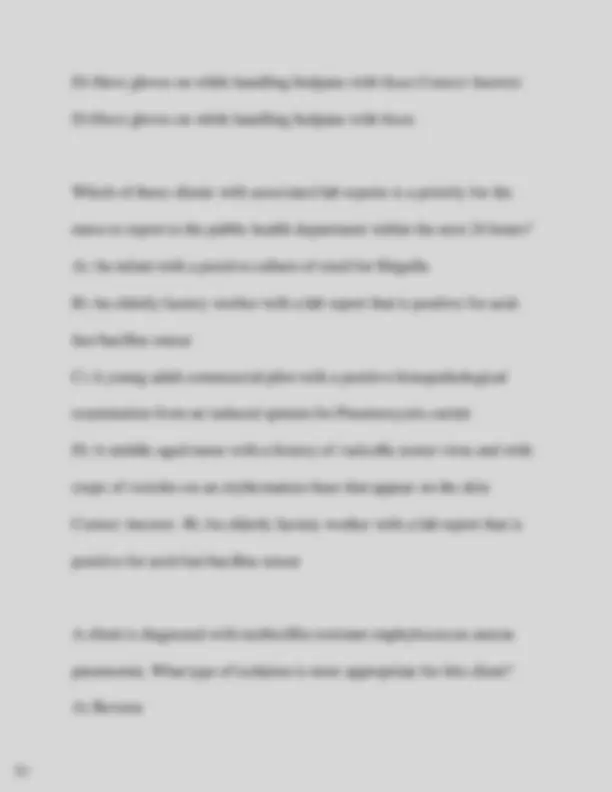
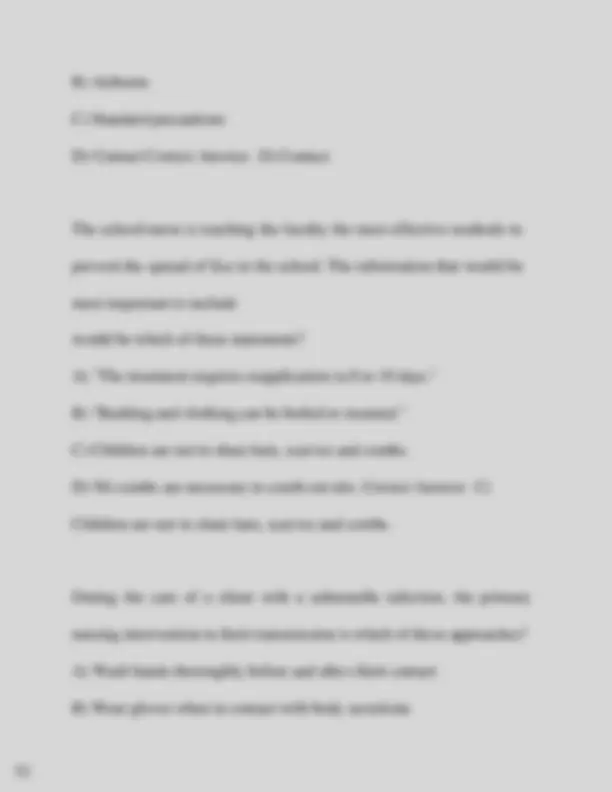
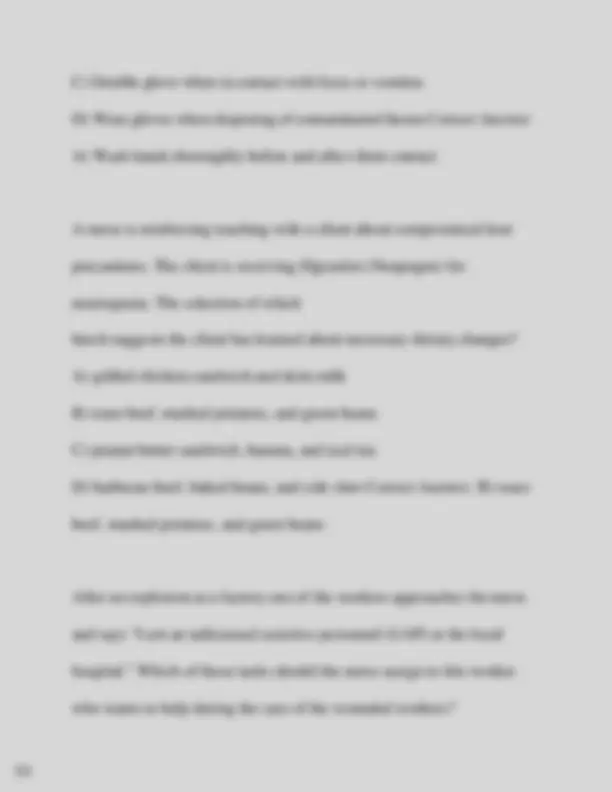
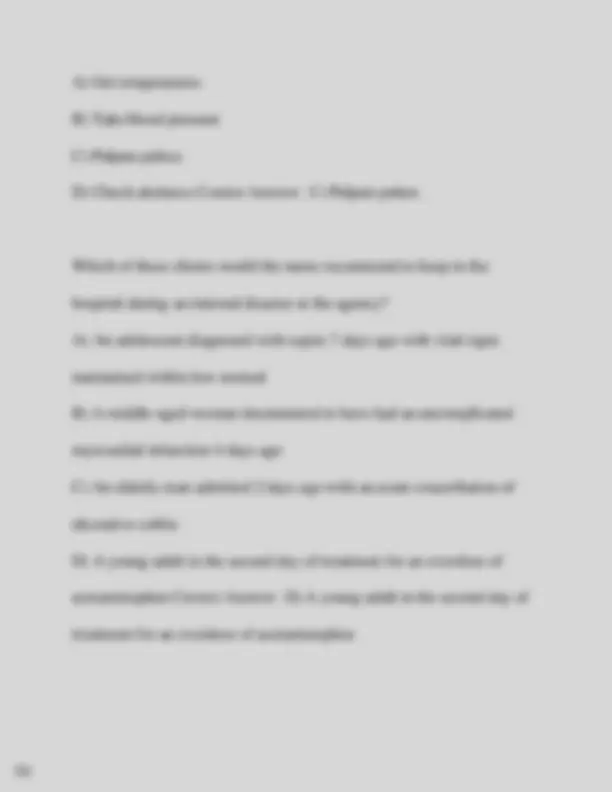
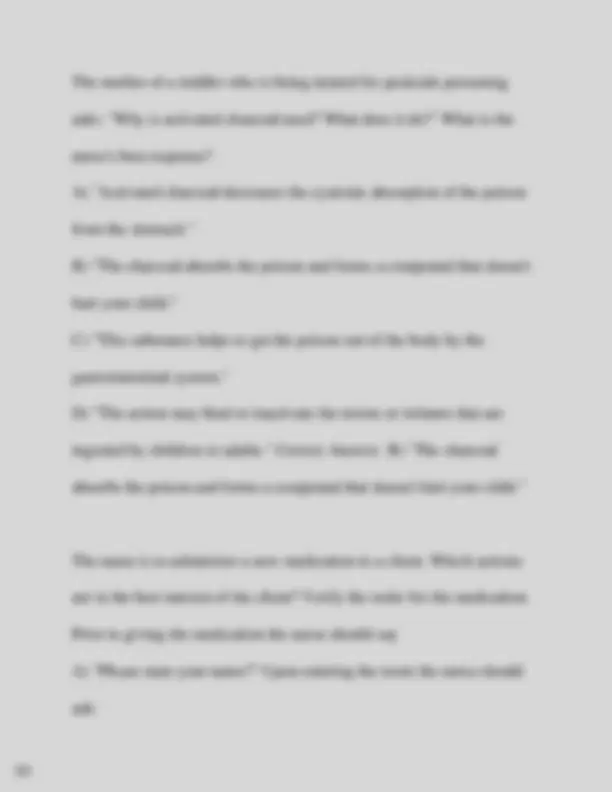
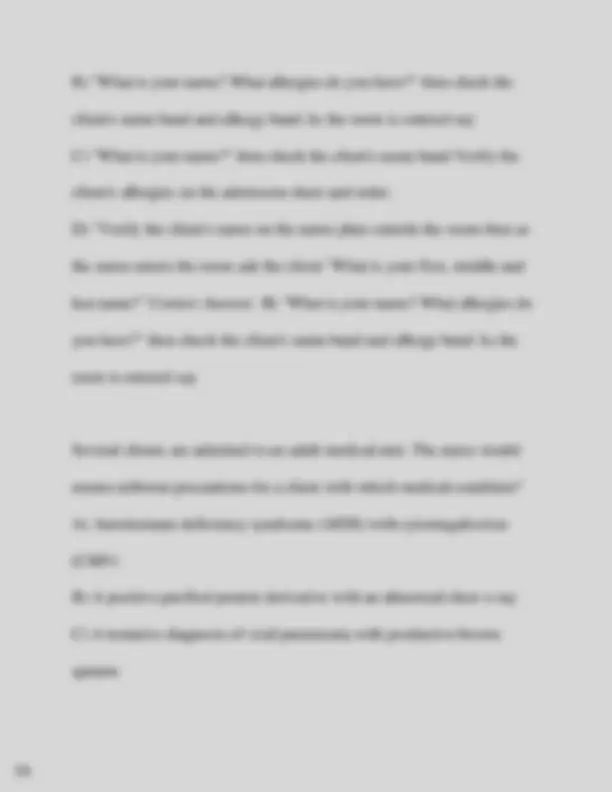
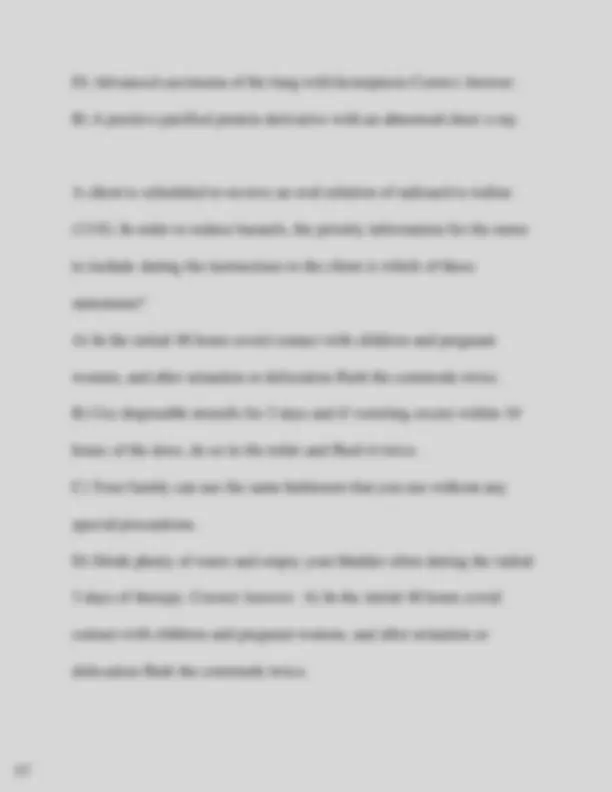
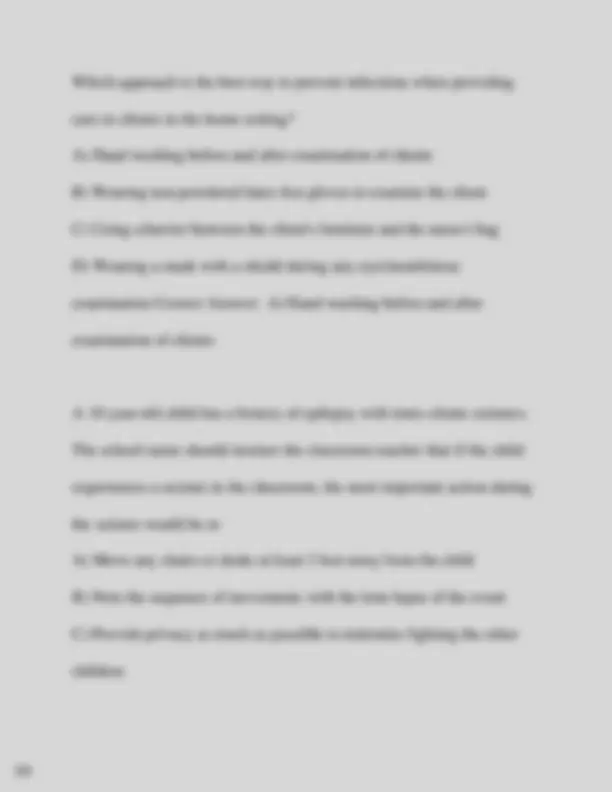
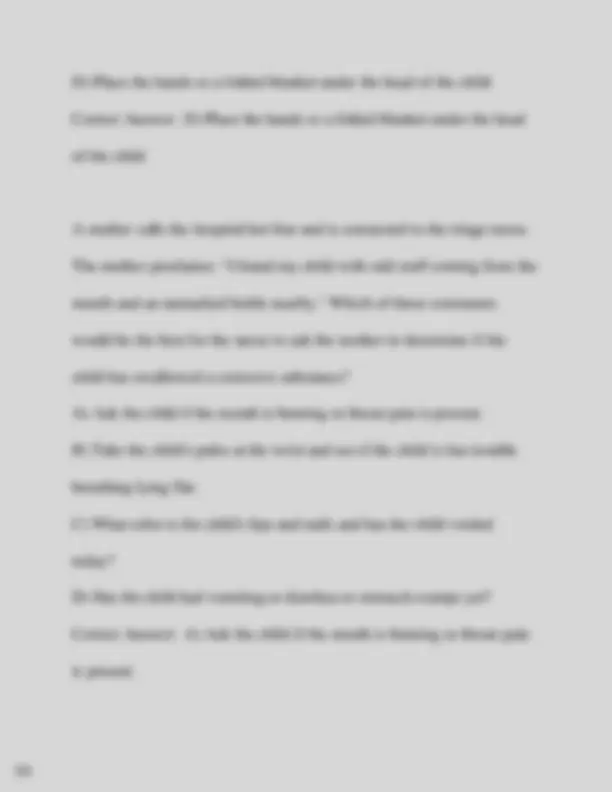
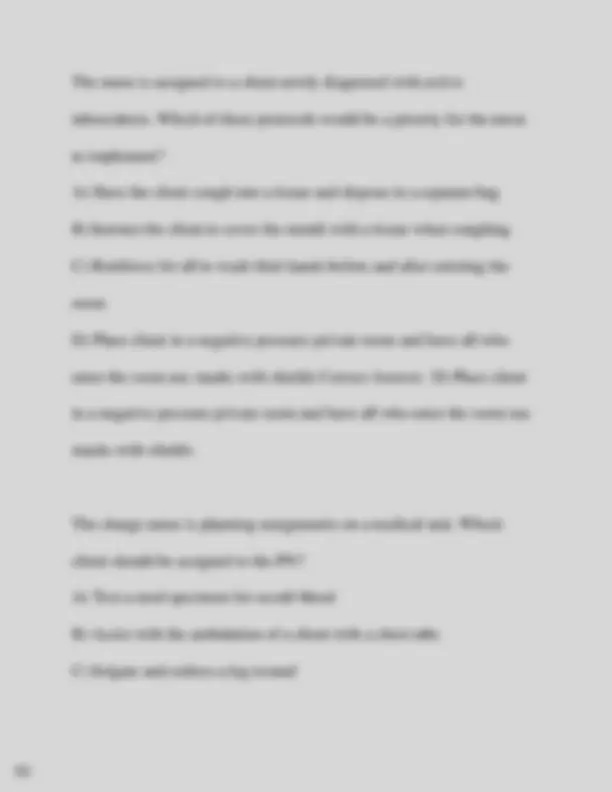
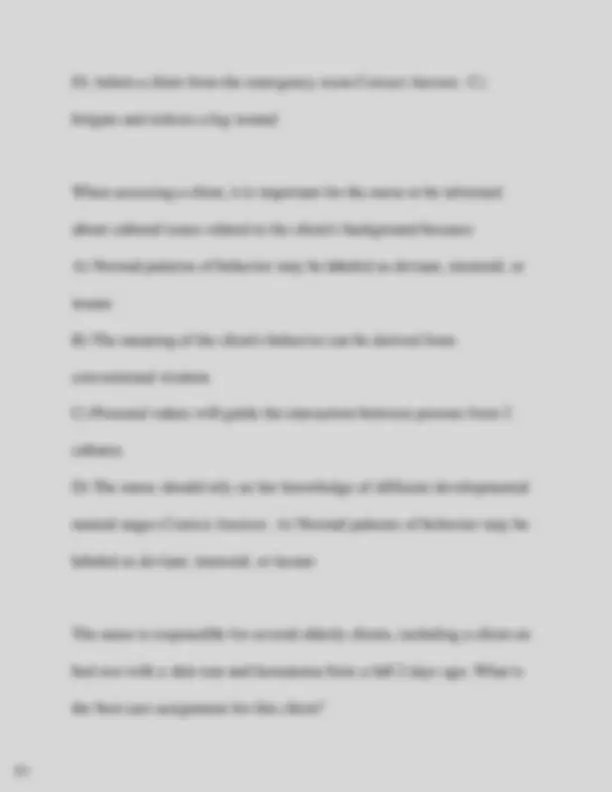
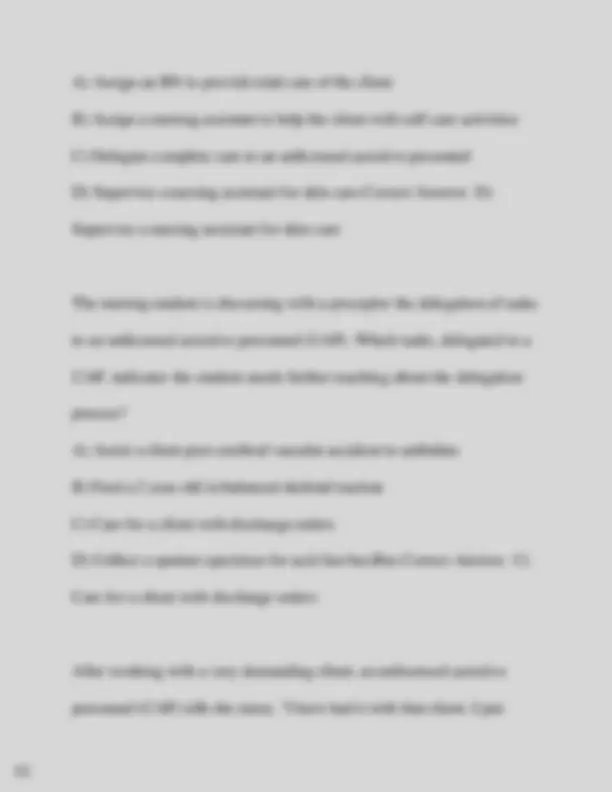
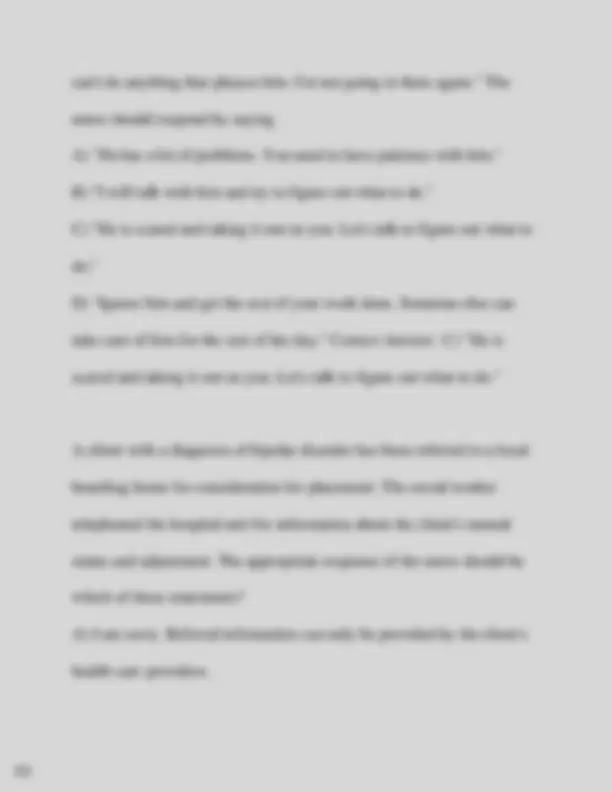
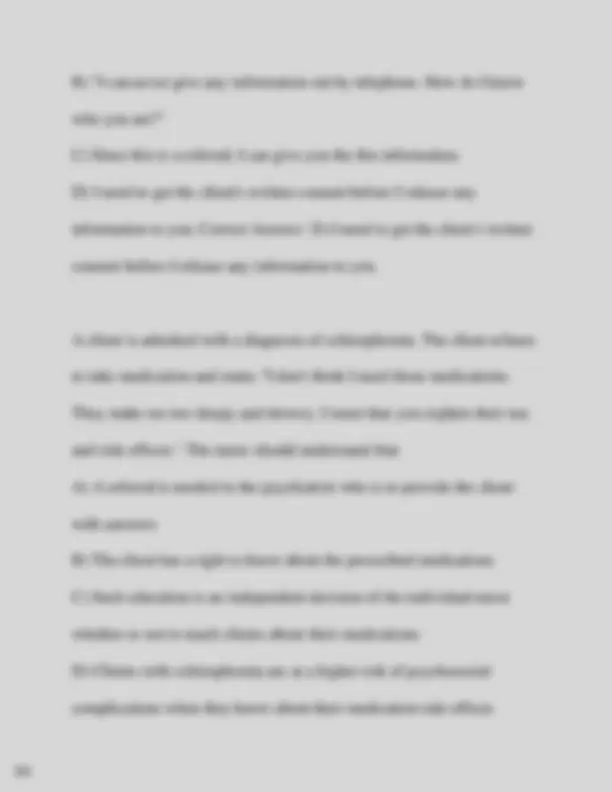
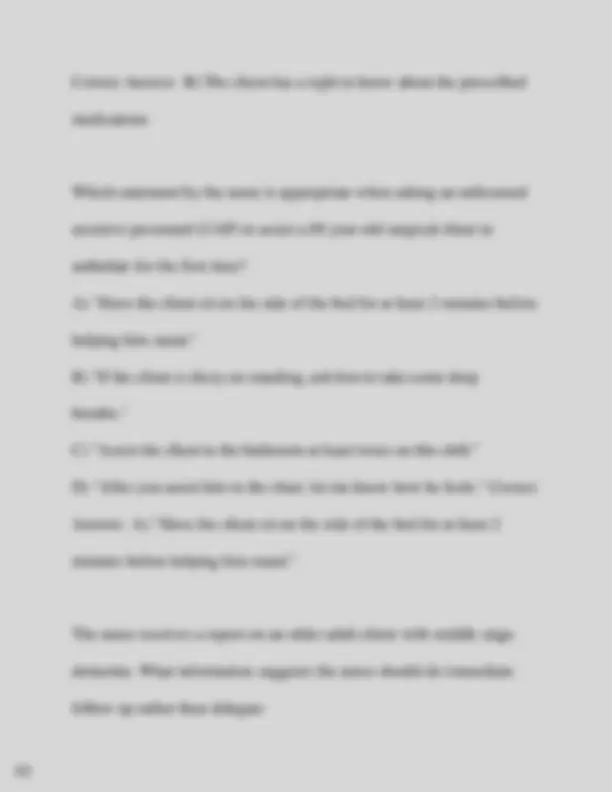
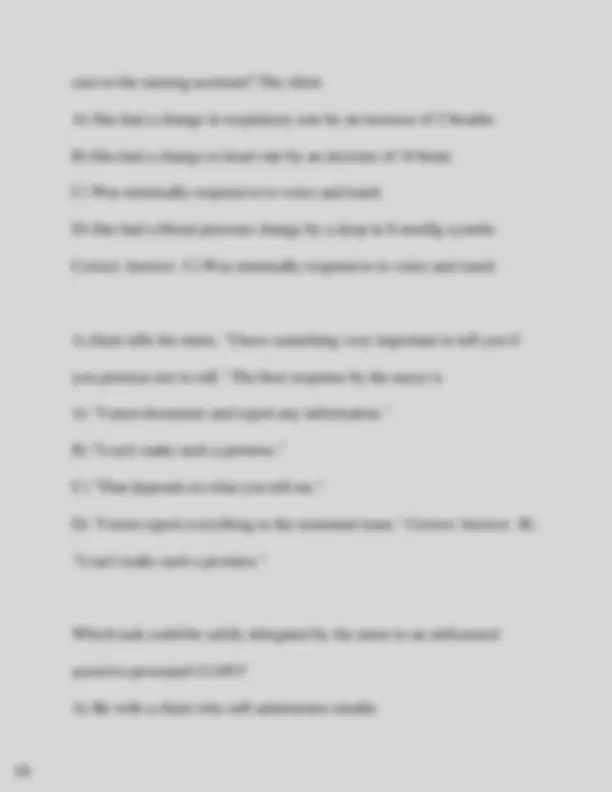
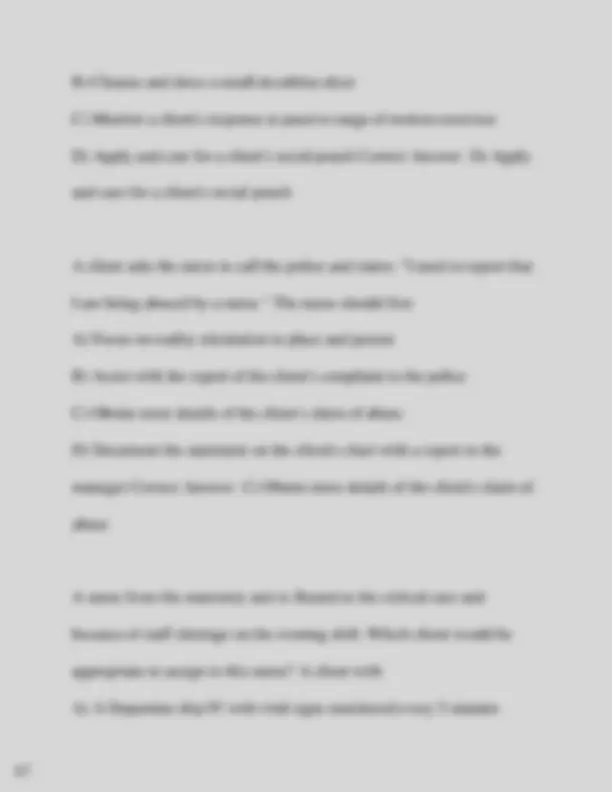
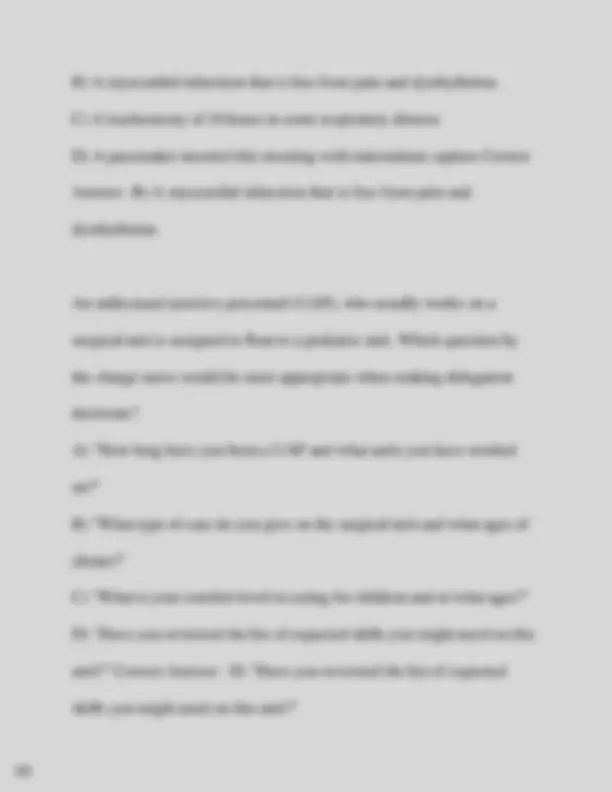
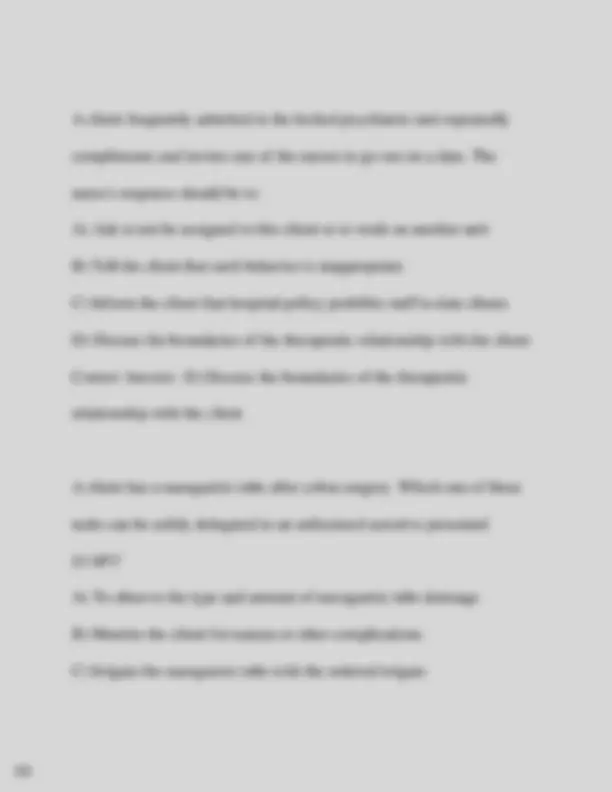
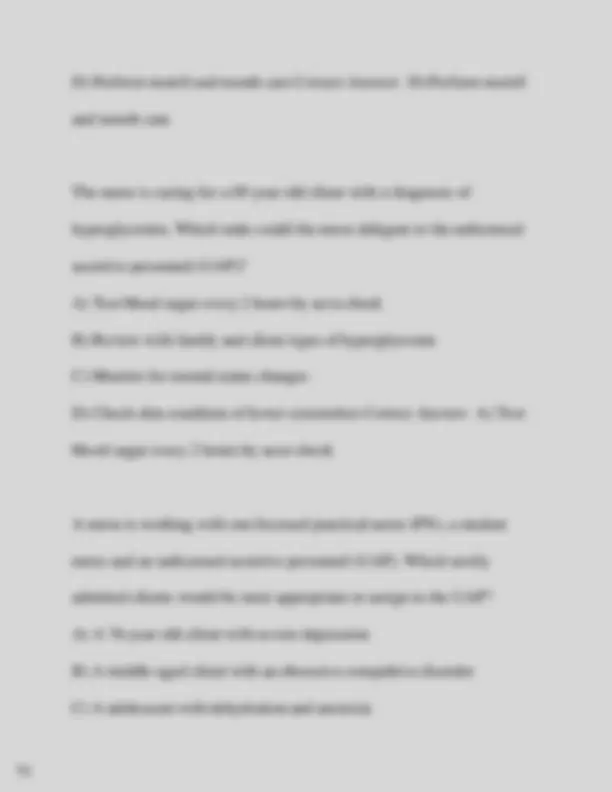
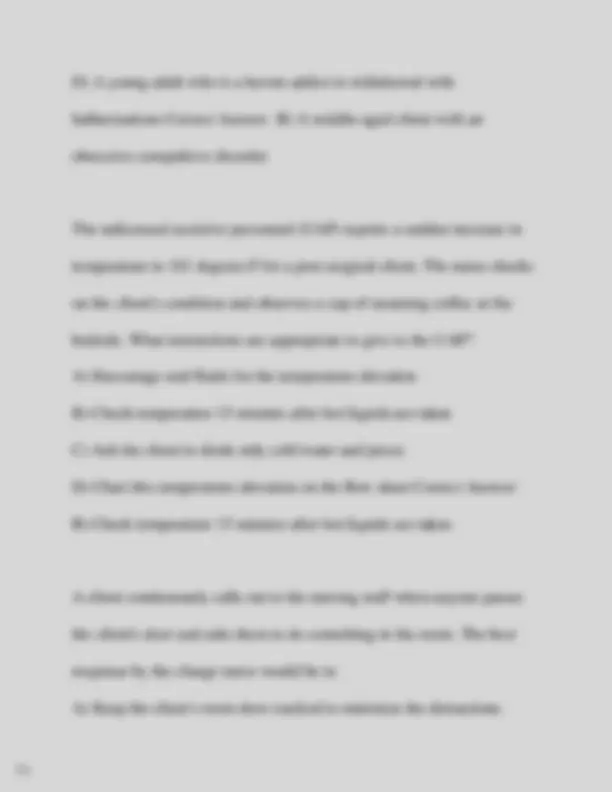
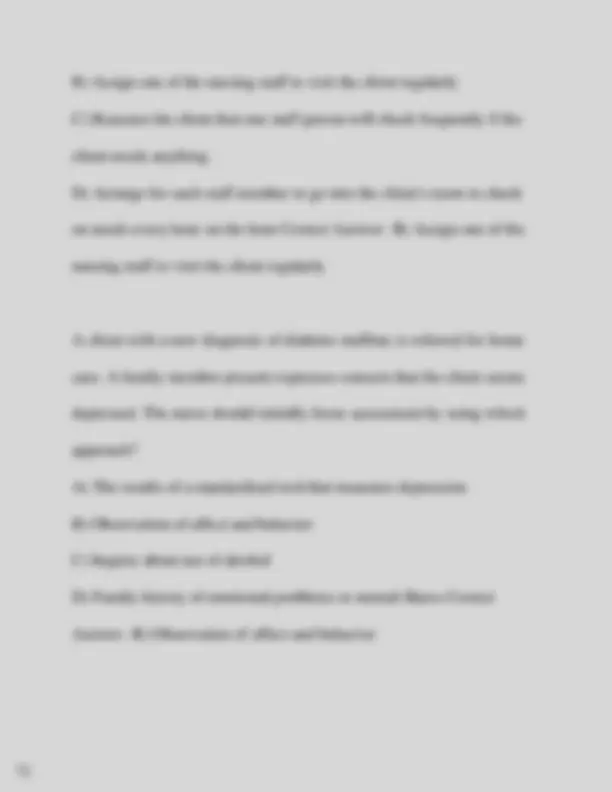
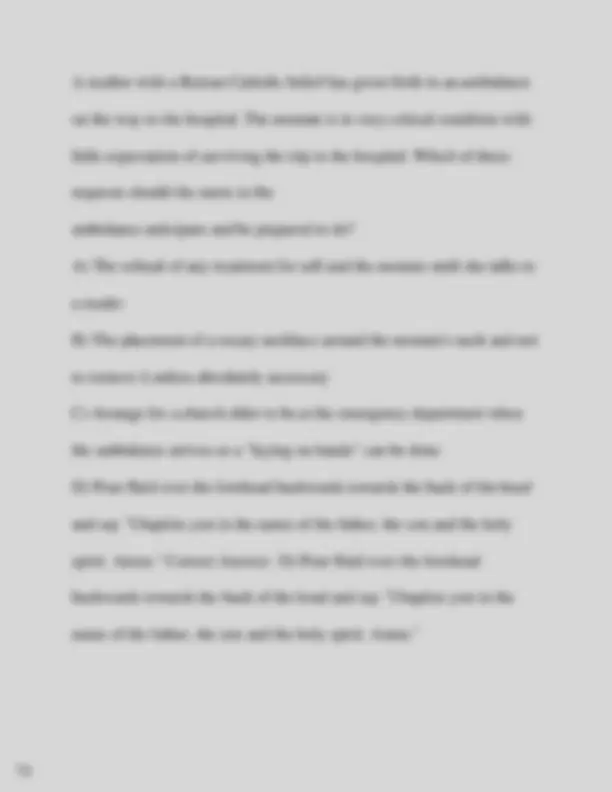
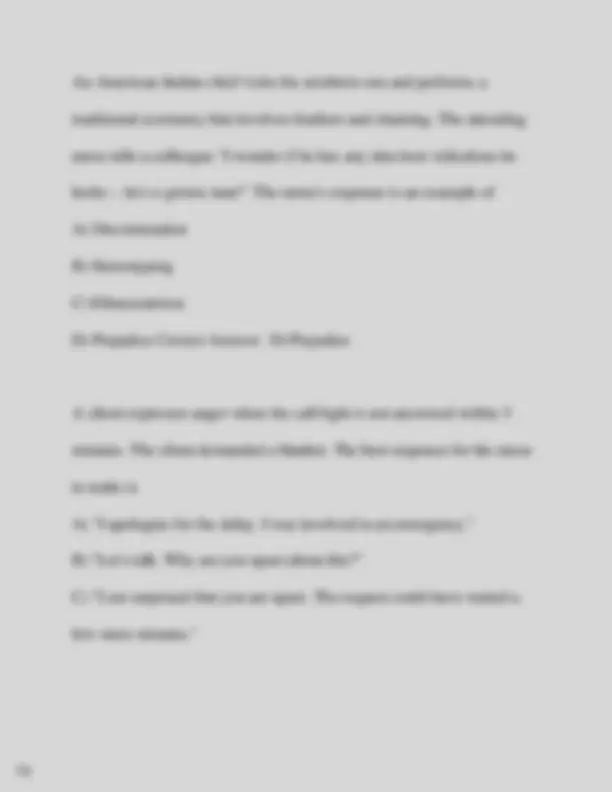
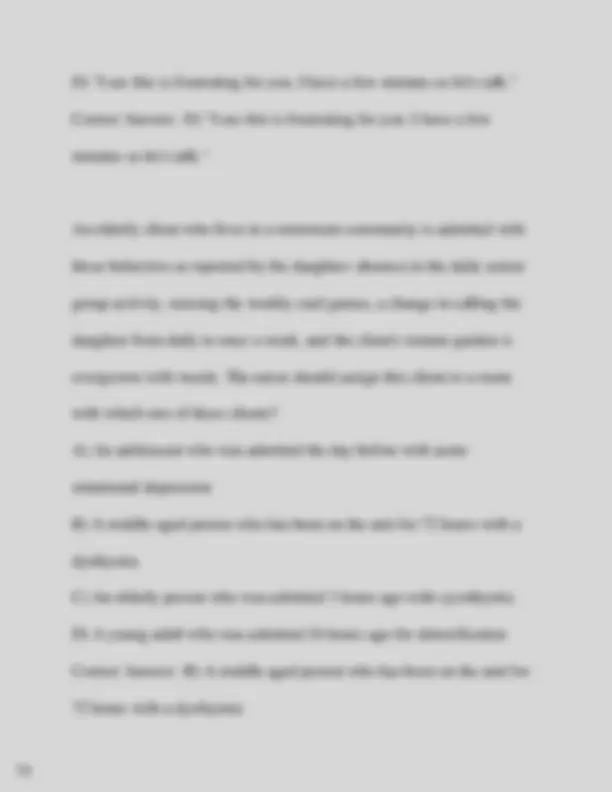
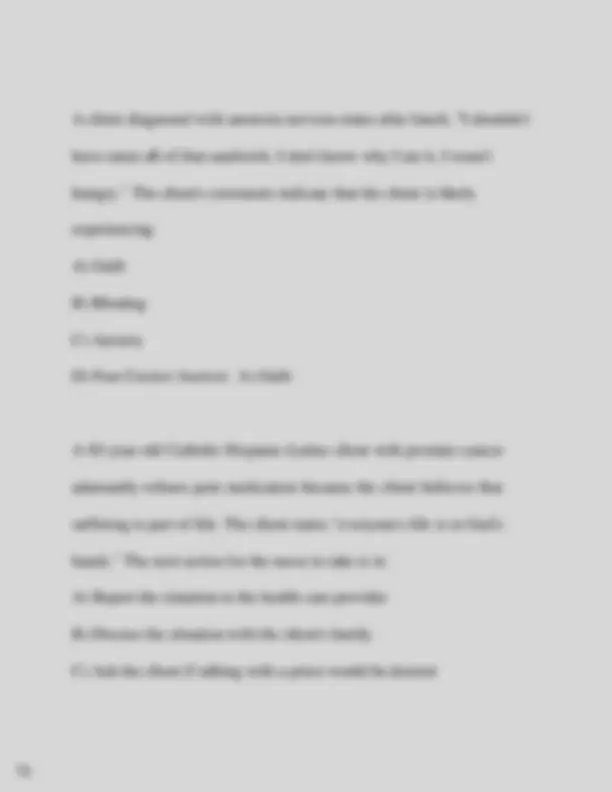
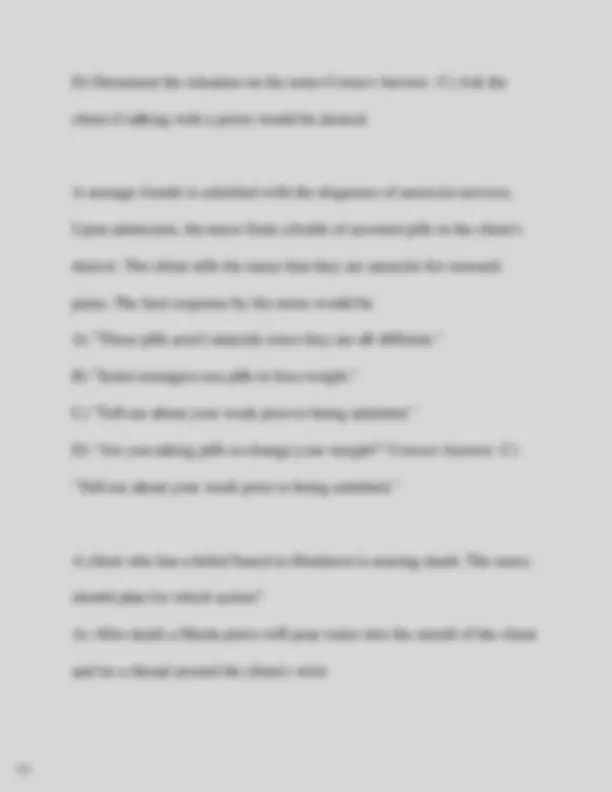
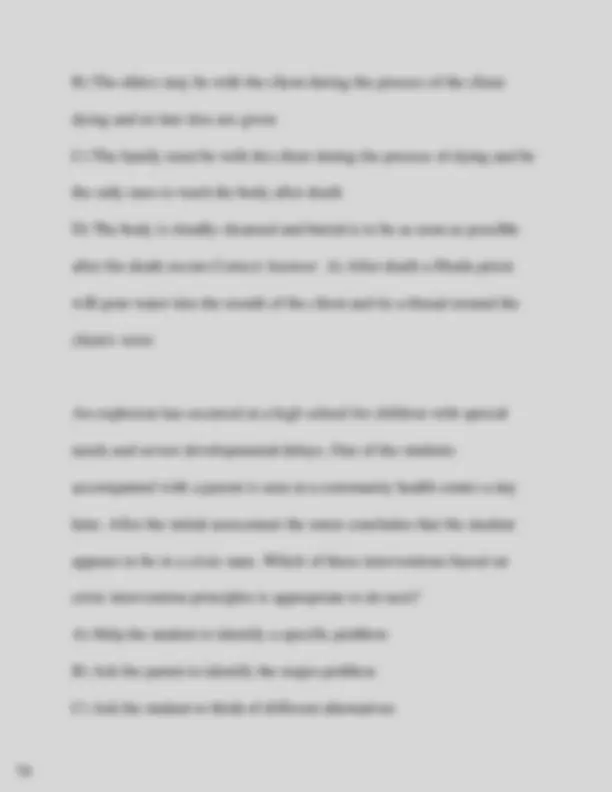
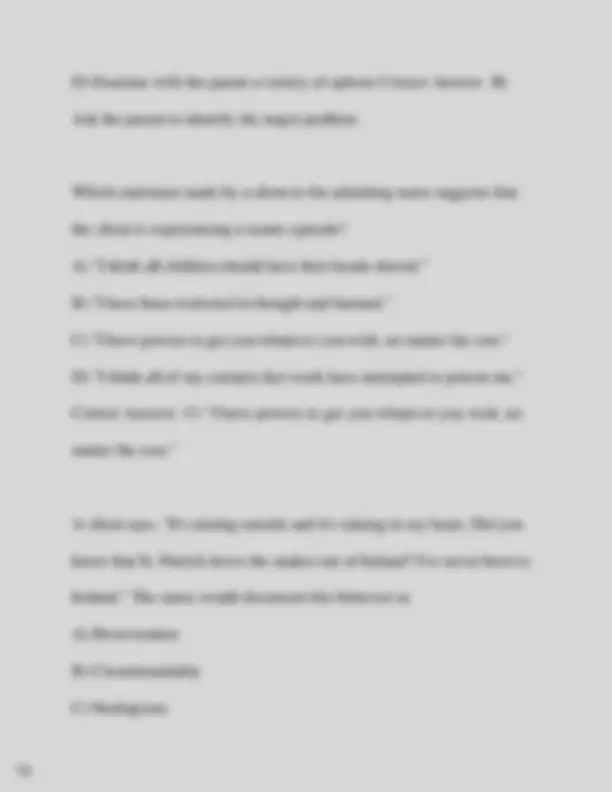
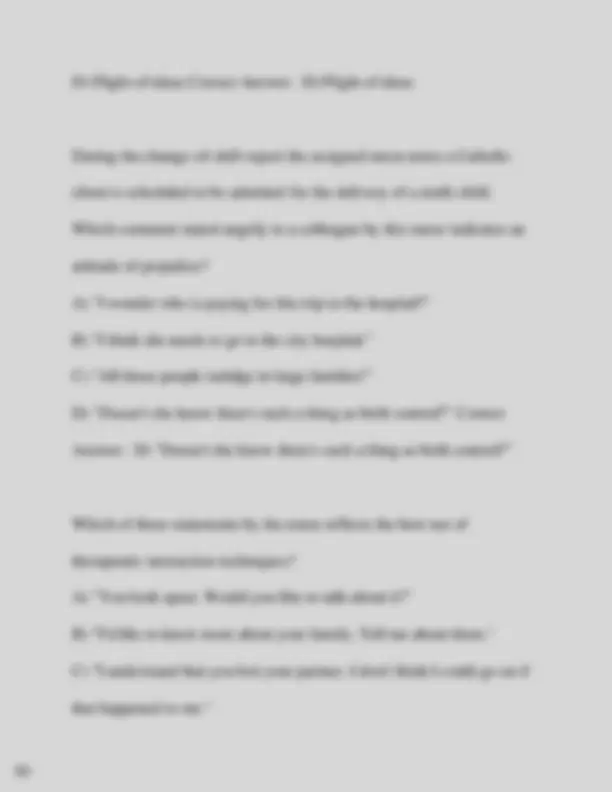
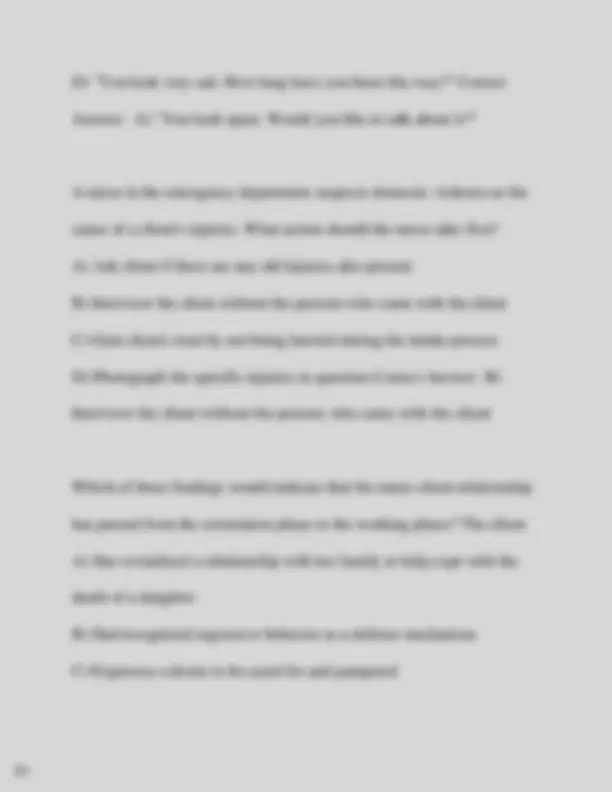
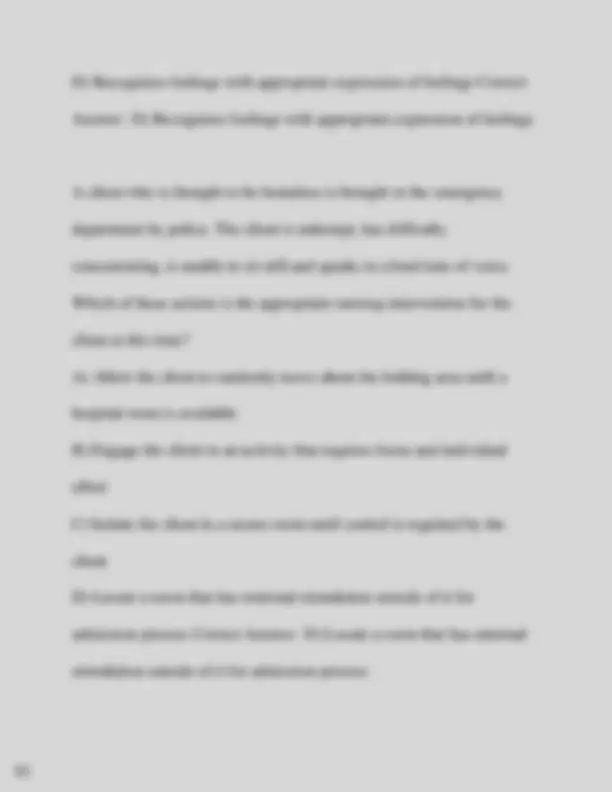
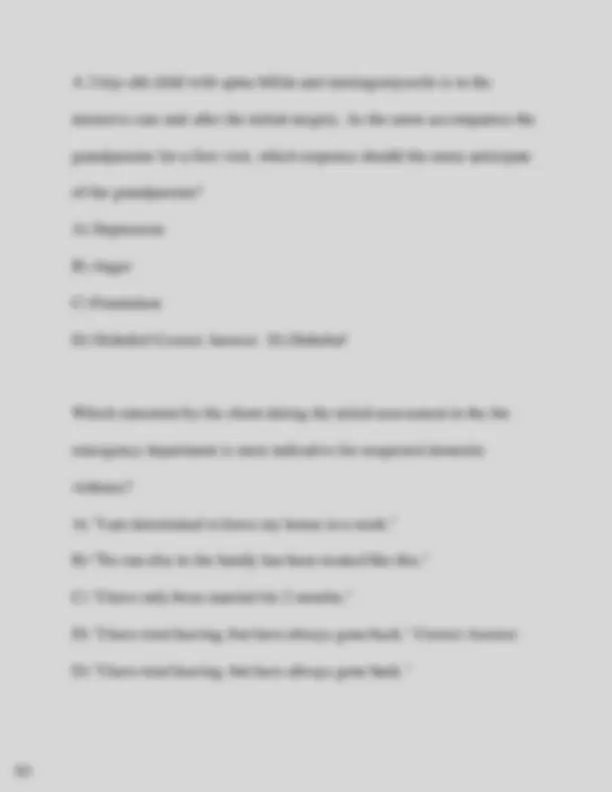
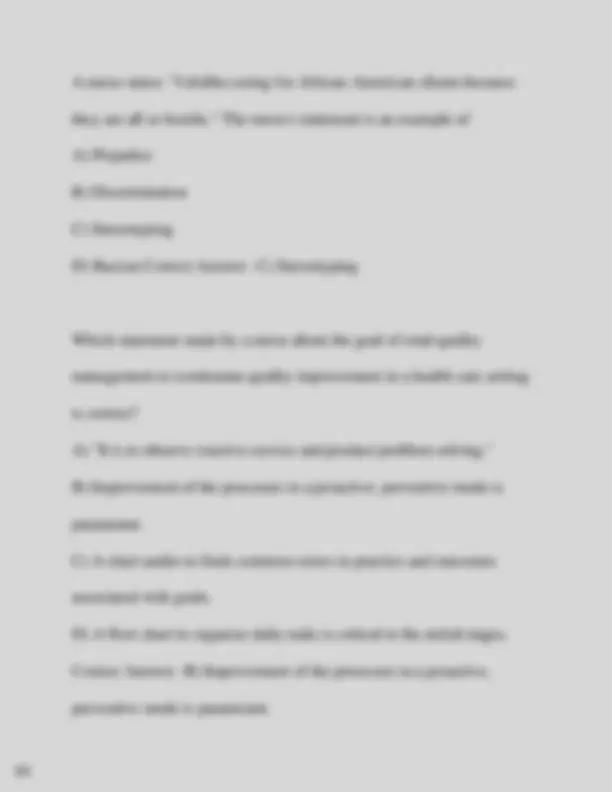
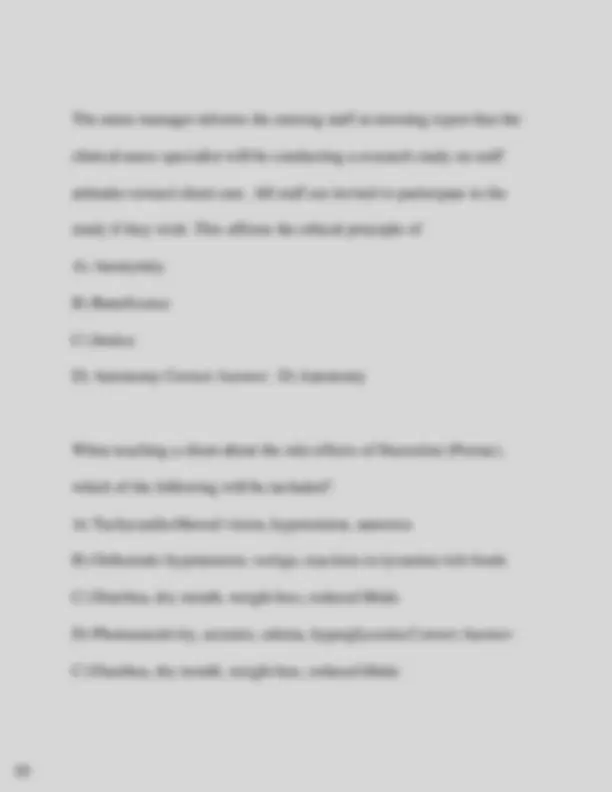
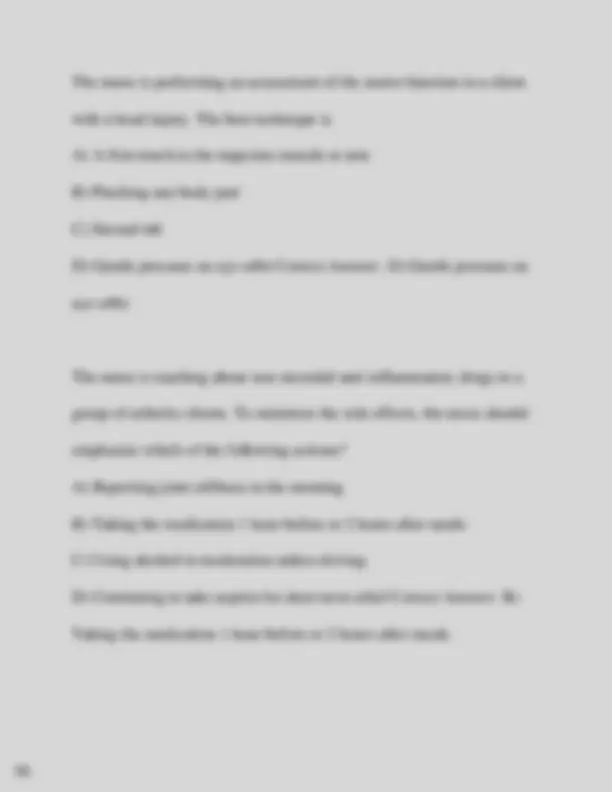
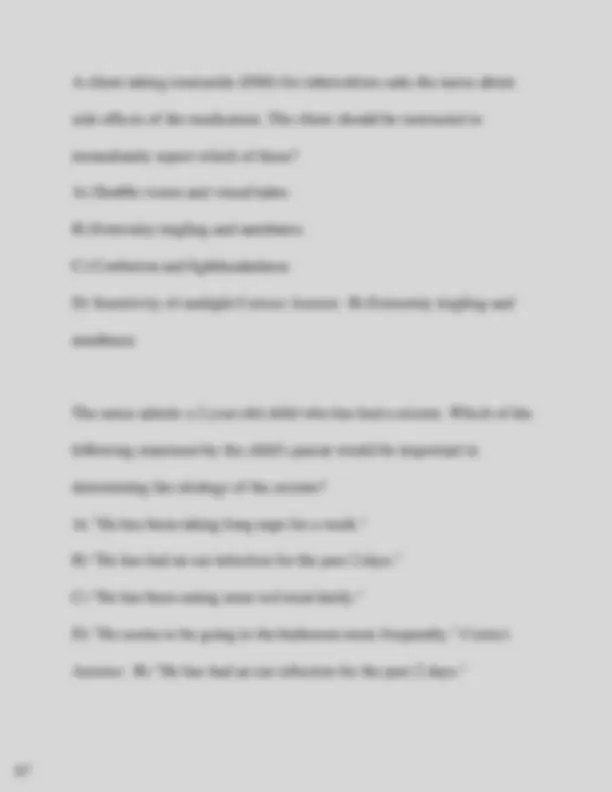
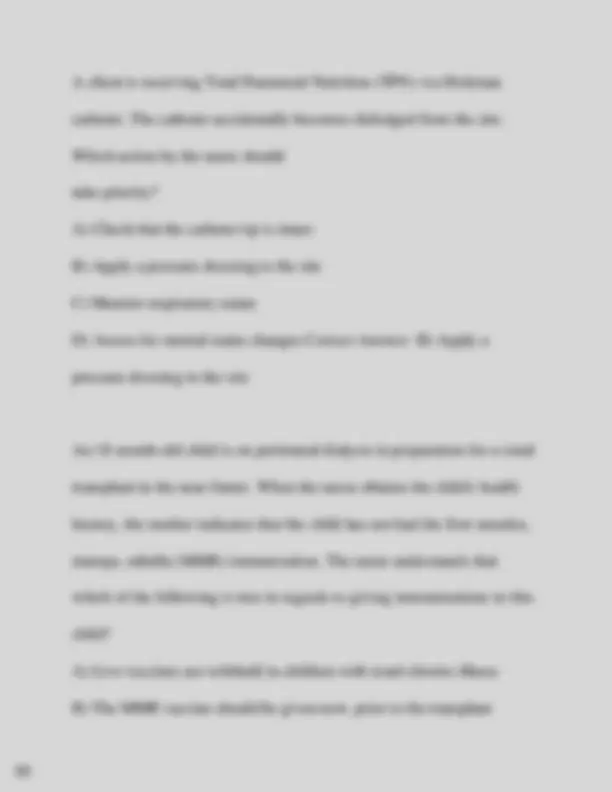
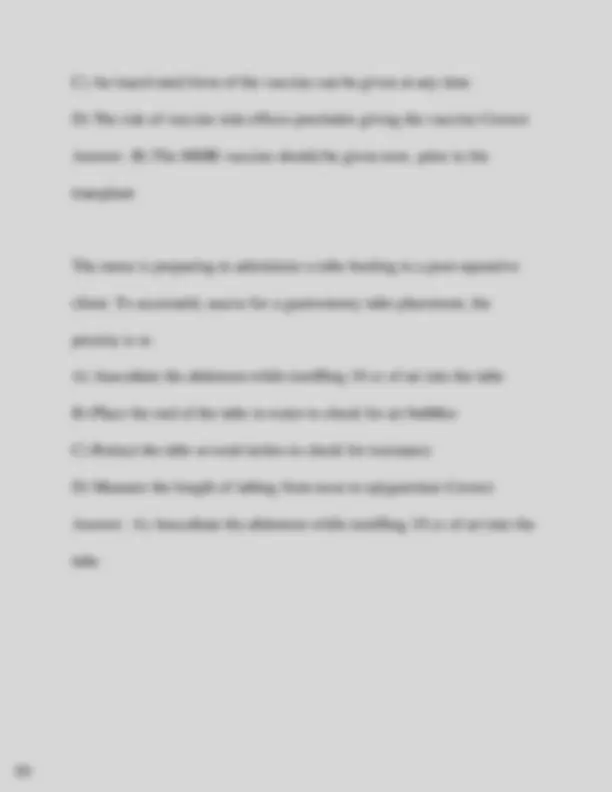


Study with the several resources on Docsity

Earn points by helping other students or get them with a premium plan


Prepare for your exams
Study with the several resources on Docsity

Earn points to download
Earn points by helping other students or get them with a premium plan
Community
Ask the community for help and clear up your study doubts
Discover the best universities in your country according to Docsity users
Free resources
Download our free guides on studying techniques, anxiety management strategies, and thesis advice from Docsity tutors
Prophecy General ICU RN A v1with complete top solutions Latest 2025 Exam |rated A+
Typology: Exams
1 / 89

This page cannot be seen from the preview
Don't miss anything!


















































































Which information is a priority for the RN to reinforce to an older client after intravenous pylegraphy? A) Eat a light diet for the rest of the day B) Rest for the next 24 hours since the preparation and the test is tiring. C) During waking hours drink at least 1 8 - ounce glass of fluid every hour for the next 2 days D) Measure the urine output for the next day and immediately notify the health care provider if it should decrease. Correct Answer: D) Measure the urine output for the next day and immediately notify the health care provider if it should decrease. A client has altered renal function and is being treated at home. The nurse recognizes that the most accurate indicator of fluid balance during the weekly visits is A) difference in the intake and output B) changes in the mucous membranes
C) skin turgor D) weekly weight Correct Answer: D) weekly weight A client has been diagnosed with Zollinger-Ellison syndrome.Which information is most important for the nurse to reinforce with the client? A) It is a condition in which one or more tumors called gastrinomas form in the pancreas or in the upper part of the small intestine (duodenum) B) It is critical to report promptly to your health care provider any findings of peptic ulcers c) Treatment consists of medications to reduce acid and heal any peptic ulcers and, if possible, surgery to remove any tumors D) With the average age at diagnosis at 50 years the peptic ulcers may occur at unusual areas of the stomach or intestine Correct Answer: B) It is critical to report promptly to your health care provider any findings of peptic ulcers
The client with infective endocarditis must be assessed frequently by the home health nurse. Which finding suggests that antibiotic therapy is not effective, and must be reported by the nurse immediately to the healthcare provider? A) Nausea and vomiting B) Fever of 103 degrees Fahrenheit (39.5 degrees Celsius) C) Diffuse macular rash D) Muscle tenderness Correct Answer: B) Fever of 103 degrees Fahrenheit (39.5 degrees Celsius) A client who had a vasectomy is in the post recovery unit at an outpatient clinic. Which of these points is most important to be reinforced by the nurse? A) Until the health care provider has determined that your ejaculate doesn't contain sperm, continue to use another form of contraception. B) This procedure doesn't impede the production of male hormones or the production of sperm in the testicles. The sperm can no longer enter your semen and no sperm are in
your ejaculate. C) After your vasectomy, strenuous activity needs to be avoided for at least 48 hours. If your work doesn't involve hard physical labor, you can return to your job as soon as you feel up to it. The stitches generally dissolve in seven to ten days. D) The health care provider at this clinic recommends rest, ice, an athletic supporter or over-the-counter pain medication to relieve any discomfort. Correct Answer: A) Until the health care provider has determined that your ejaculate doesn't contain sperm, continue to use another form of contraception. A client who is to have antineoplastic chemotherapy tells the nurses of a fear of being sick all the time and wishes to try acupuncture. Which of these beliefs stated by the client would be incorrect about acupuncture? A) Some needles go as deep as 3 inches, depending on where they're placed in the body and what the treatment is for. The needles usually are left in for 15 to 30 minutes.
C) Kawasaki disease occurs most often in boys, children younger than age 5 and children of Hispanic descent D) Initially findings are a sudden high fever, usually above 104 degrees Fahrenheit, which lasts 1 to2 weeks Correct Answer: C) Kawasaki disease occurs most often in boys, children younger than age 5 and children of Hispanic descent A client has viral pneumonia affecting 2/3 of the right lung. What would be the best position to teach the client to lie in every other hour during first 12 hours after admission? A) Side-lying on the left with the head elevated 10 degrees B) Side-lying on the left with the head elevated 35 degrees C) Side-lying on the right wil the head elevated 10 degrees D) Side-lying on the right with the head elevated 35 degrees Correct Answer: A) Side-lying on the left with the head elevated 10 degrees A client has an indwelling catheter with continuous bladder irrigation after undergoing a transurethral resection of the prostate (TURP) 12
hours ago. Which finding at this time should be reported to the health care provider? A) Light, pink urine B) occasional suprapubic cramping C) minimal drainage into the urinary collection bag D) complaints of the feeling of pulling on the urinary catheter Correct Answer: C) minimal drainage into the urinary collection bag A nurse is performing CPR on an adult who went into cardiopulmonary arrest. Another nurse enters the room in response to the call. After checking the client's pulse and respirations, what should be the function of the second nurse? A) Relieve the nurse performing CPR B) Go get the code cart C) Participate with the compressions or breathing D) Validate the client's advanced directive Correct Answer: C) Participate with the compressions or breathing
A nurse assesses a young adult in the emergency room following a motor vehicle accident. Which of the following neurological signs is of most concern? A) Flaccid paralysis B) Pupils fixed and dilated C) Diminished spinal reflexes D) Reduced sensory responses Correct Answer: B) Pupils fixed and dilated A 14 year-old with a history of sickle cell disease is admitted to the hospital with a diagnosis of vaso-occlusive crisis. Which statements by the client would be most indicative of the etiology of this crisis? A) "I knew this would happen. I've been eating too much red meat lately." B) "I really enjoyed my fishing trip yesterday. I caught 2 fish." C) "I have really been working hard practicing with the debate team at school."
D) "I went to the health care provider last week for a cold and I have gotten worse." Correct Answer: D) "I went to the health care provider last week for a cold and I have gotten worse." Which these findings would the nurse more closely associate with anemia in a 10 month-old infant? A) Hemoglobin level of 12 g/dI B) Pale mucosa of the eyelids and lips C) Hypoactivity D) A heart rate between 140 to 160 Correct Answer: B) Pale mucosa of the eyelids and lips The nurse is caring for a client in hypertensive crisis in an intensive care unit. The priority assessment in the first hour of care is A) Heart rate B) Pedal pulses C) Lung sounds D) Pupil responses Correct Answer: D) Pupil responses
As the nurse is speaking with a group of teens which of these side effects of chemotherapy for cancer would the nurse expect this group to be more interested in during the discussion? A) Mouth sores B) Fatigue C) Diarrhea D) Hair loss Correct Answer: D) Hair loss While caring for a client who was admitted with myocardial infarction (MI) 2 days ago, the nurse notes today's temperature is 101.1 degrees Fahrenheit (38.5 degrees Celsius). The appropriate nursing intervention is to A) Call the health care provider immediately B) Administer acetaminophen as ordered as this is normal at this time C) Send blood, urine and sputum for culture D) Increase the client's fluid intake Correct Answer: B) Administer acetaminophen as ordered as this is normal at this time
A client is admitted for first and second degree burns on the face, neck, anterior chest and hands. The nurse's priority should be A) Cover the areas with dry sterile dressings B) Assess for dyspnea or stridor C) Initiate intravenous therapy D) Administer pain medication Correct Answer: B) Assess for dyspnea or stridor Which of these clients who call the community health clinic would the nurse ask to come in that day to be seen by the health care provider? A) I started my period and now my urine has turned bright red. B) I am an diabetic and today I have been going to the bathroom every hour. C) I was started on medicine yesterday for a urine infection. Now my lower belly hurts when I go to the bathroom.
An elderly client admitted after a fall begins to seize and loses consciousness. What action by the nurse is appropriate to do next? A) Stay with client and observe for airway obstruction B) Collect pillows and pad the side rails of the bed C) Place an oral airway in the mouth and suction D) Announce a cardiac arrest, and assist with intubation Correct Answer: A) Stay with client and observe for airway obstruction A nurse is providing care to a primigravida whose membranes spontaneously ruptured (ROM) 4 hours ago. Labor is to be induced. At the time of the ROM the vital signs were T-99.8 degrees F, P-84, R-20, BP-130/78, and fetal heart tones (FHT) 148 beats/min. Which assessment findings taken now may be an early indication that the client is developing a complication of labor? A) FHT 168 beats/min B) Temperature 100 degrees Fahrenheit. C) Cervical dilation of 4
D) BP 138/88 Correct Answer: A) FHT 168 beats/min A client with pneumococcal pneumonia had been started on antibiotics 16 hours ago. During the nurse's initial evening rounds the nurse notices a foul smell in the room. The client makes all of these statements during their conversation. Which statement would alert the nurse to a complication? A) "I have a sharp pain in my chest when I take a breath." B) "I have been coughing up foul-tasting, brown, thick sputum." C) "I have been sweating all day." D) "I feel hot off and on." Correct Answer: B) "I have been coughing up foul-tasting, brown, thick sputum." The nurse is performing an assessment on a client in congestive heart failure. Auscultation of the heart is most likely to reveal A) S3 ventricular gallop B) Apical click C) Systolic murmur
D) "The tube will seal the hole in your lung." Correct Answer: B) "The tube will remove excess air from your chest." The nurse is reviewing laboratory results on a client with acute renal failure. Which one of the following should be reported immediately? A) Blood urea nitrogen 50 mg/dl B) Hemoglobin of 10.3 mg/dl C) Venous blood pH 7. D) Serum potassium 6 mEq/L Correct Answer: D) Serum potassium 6 mEq/L The nurse is caring for a client undergoing the placement of a central venous catheter line. Which of the following would require the nurse's immediate attention? A) Pallor B) Increased temperature C) Dyspnea D) Involuntary muscle spasms Correct Answer: C) Dyspnea
The nurse is performing a physical assessment on a client who just had an endotracheal tube inserted. Which finding would call for immediate action by the nurse? A) Breath sounds can be heard bilaterally B) Mist is visible in the T-Piece C) Pulse oximetry of 88 D) Client is unable to speak Correct Answer: C) Pulse oximetry of 88 A nurse checks a client who is on a volume-cycled ventilator. Which finding indicates that the client may need suctioning? A) drowsiness B) complaint of nausea C) pulse rate of 92 D) restlessness Correct Answer: D) restlessness The most effective nursing intervention to prevent atelectasis from developing in a post-operative client is to